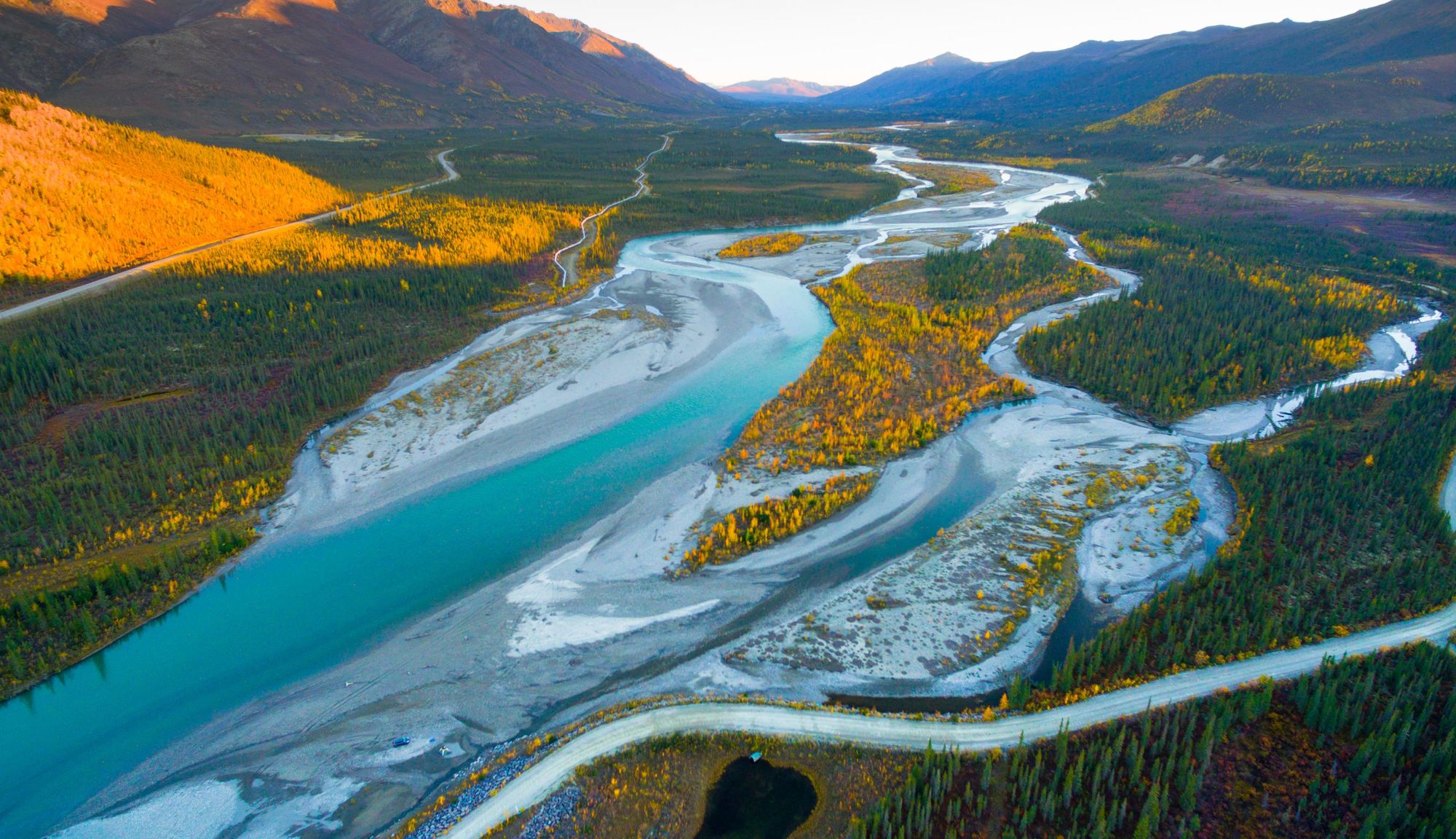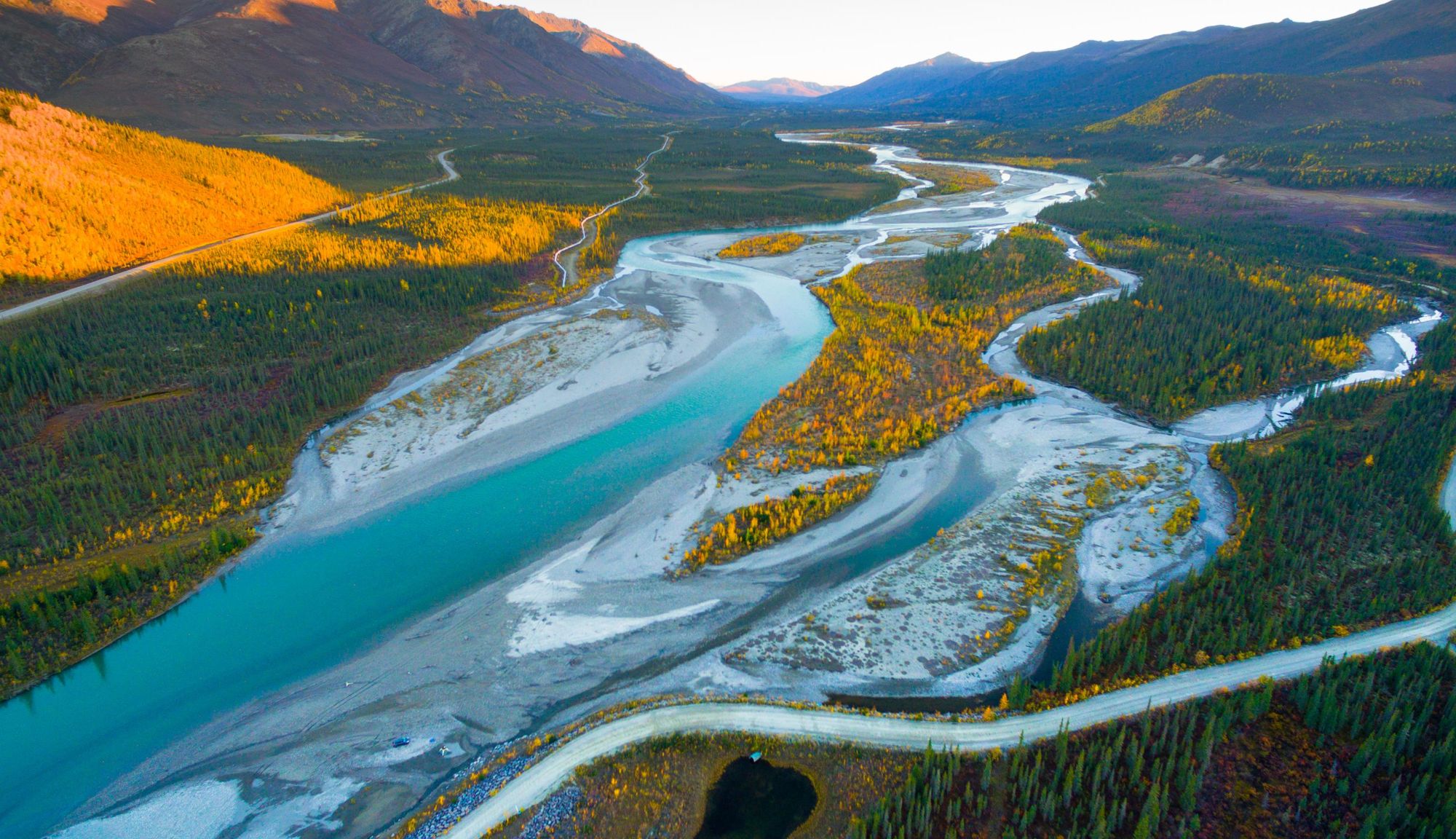
June is a joyous month - and a global favourite for travel. You get the great weather that comes with summer, without the high crowds or heats of July or August. Yup, journey in June and you'll get just the right mix.
Explore the Azores, discover the wilds of Alaska or Kyrgyzstan or venture into the jaw-dropping jungles of Colombia...
Think jovial locals (not yet jaded by the jam-packed peak season), jubilant sunshine and gentle breezes blowing as you jaunt up to a mountain summit.
Join a wild swimming group in the warm waters off a Greek island. Jump in a safari car and spot giraffes on the ground and African Jacanas on the water. Or jabber with new pals as you packraft down a green canyon in Montenegro.

Explore the Azores, discover the wilds of Alaska or Kyrgyzstan or venture into the jaw-dropping jungles of Colombia or Costa Rica and jostle with sloths and toucans. During June, the world is open and waiting for you to explore. No joke.
Here are the best travel destinations to visit in June - a dream month to journey.
1. The Okavango Delta, Botswana
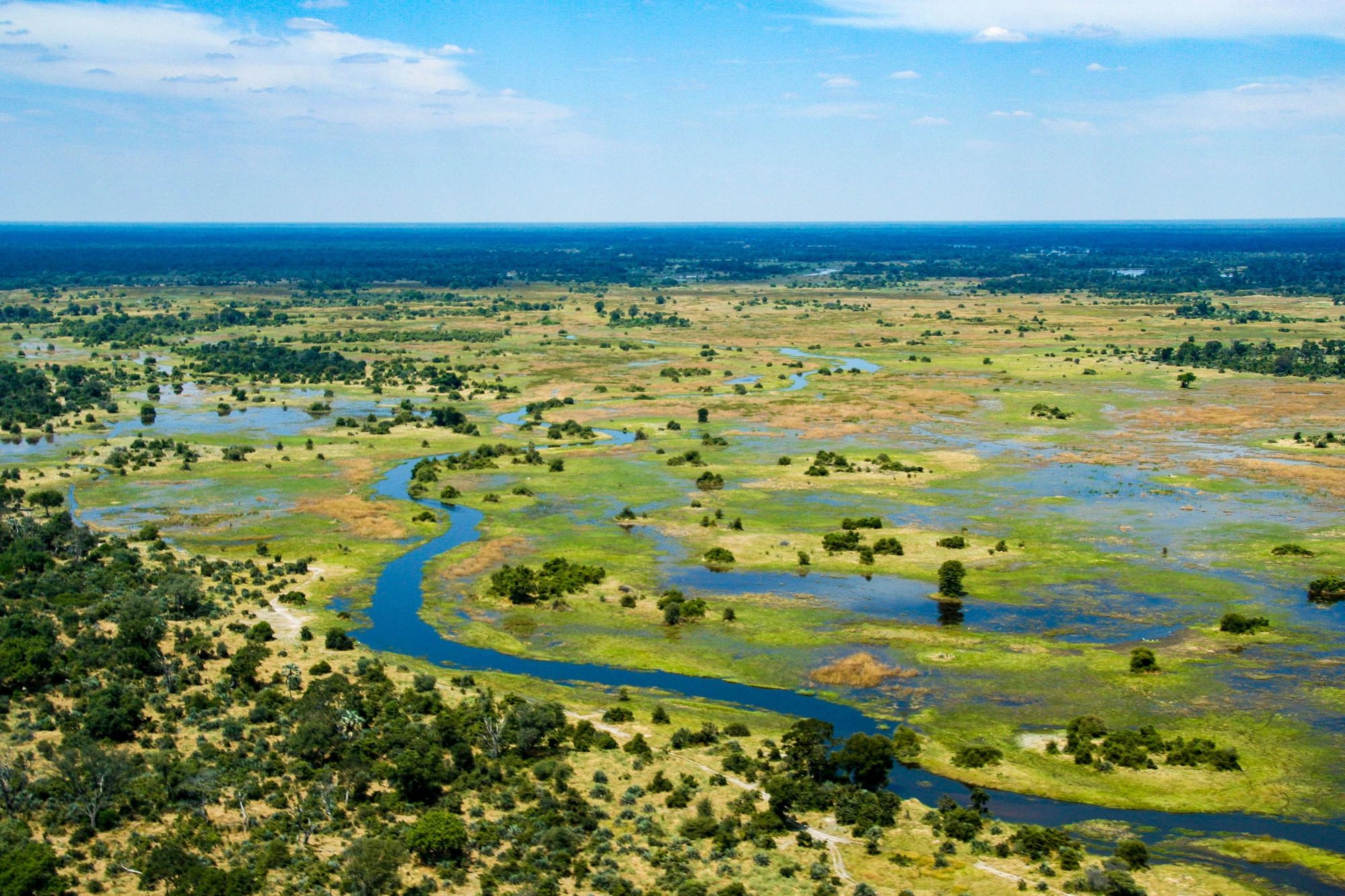
- Season: Winter (dry season)
- Temperature: 26°C high, 6°C low
- Time zone: GMT+2
- Currency: Botswana Pula
- Best for: Wildlife lovers
The Okavango Delta is an enormous inland delta - a huge wetland area - with such a significant density of wildlife that it’s been classified as a UNESCO World Heritage Site. It’s one of the few interior delta systems that doesn’t flow into an ocean or sea, and which has an intact wetland system. If that sounds a little boring, then fear not, the repercussions of it are certainly not. What it means in practice is that here, you can come to see wildlife ranging from lions, leopards and hyenas to white rhinoceros, hippopotamus, giraffes, wildebeest and so (so) much more.
June is the dry season in Botswana, and as water becomes scarce, animals tend to congregate around watering holes - making them easier to spot. You could pull up at one spot and see elephants, hippos and buffalo, for example.
How to Get There? Most visitors start their trip either at the Maun Airport in Botswana or the Hosea Kutako International Airport, which is east of the Namibian capital of Windhoek.

2. The Rocky Mountains, Canada
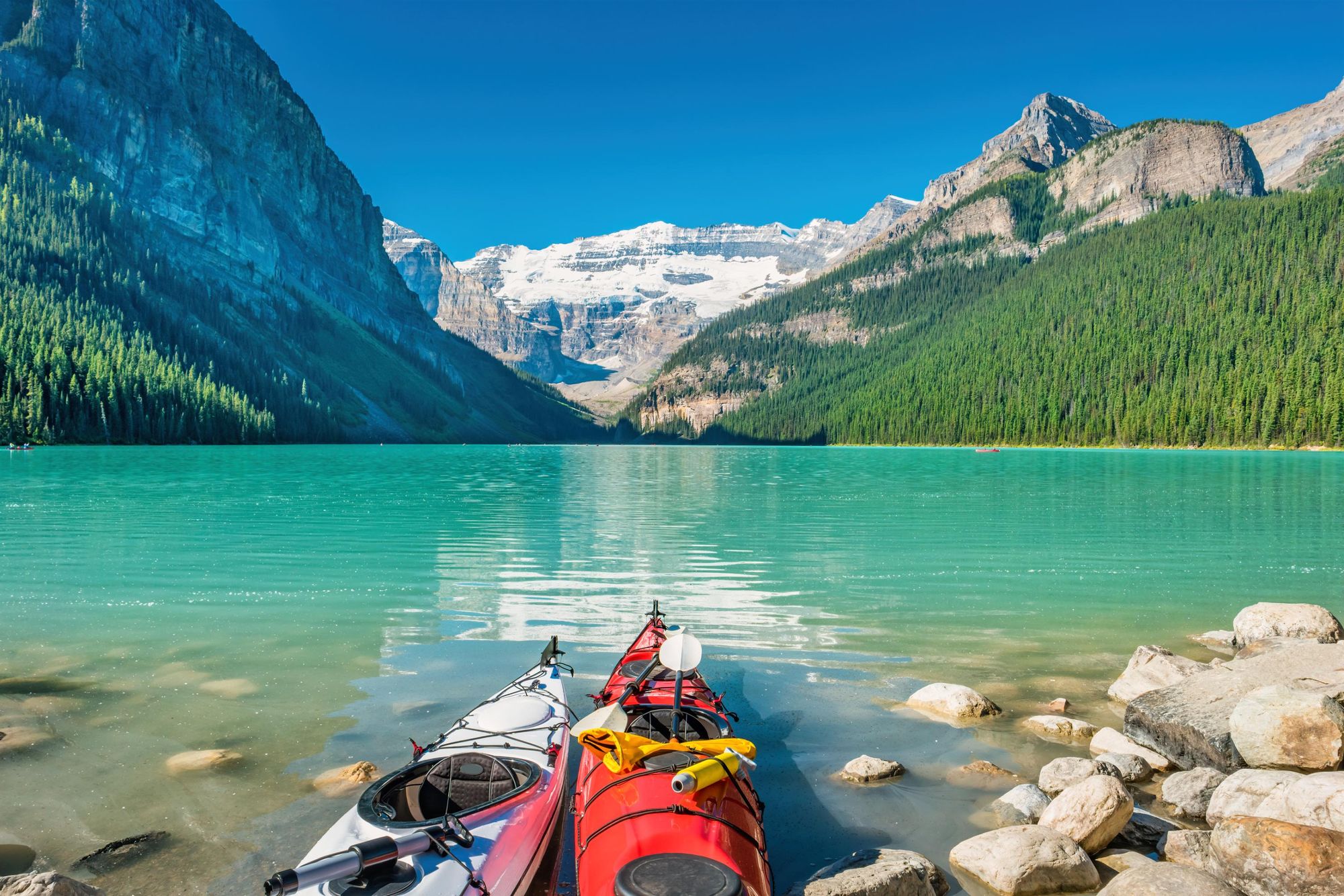
- Season: Summer
- Temperature: 20°C high, 8°C low
- Time zone: GMT-6
- Currency: Canadian Dollar
- Best for: Picture perfect mountain views
If forced to scribble down the world’s most beautiful outdoor location - a scenario which, admittedly, is unlikely to actually arise - many people would surely opt for the Canadian Rockies. Specifically, they would talk of Banff, and of the turquoise waters of Lake Louise. They might speak of a visit to the summit of Mount Fairview, or of the enormity of Sentinel Pass, or dream of the views down to Maligne Lake from the top of the Bald Hills in Jasper National Park.
Well, good news. All of these places are just as beautiful as they say they are. If you visit in June, you won’t get quite so caught up in the peak summer crowds, the lakes will have recently thawed and the wildlife - from the moose and elk to the bears - will be active, making their way through forests and wildflowers.
How to Get There? Most people will fly into Calgary International Airport in Alberta. From here, it’s roughly four hours in a car. Others fly into Vancouver, but this is further away.
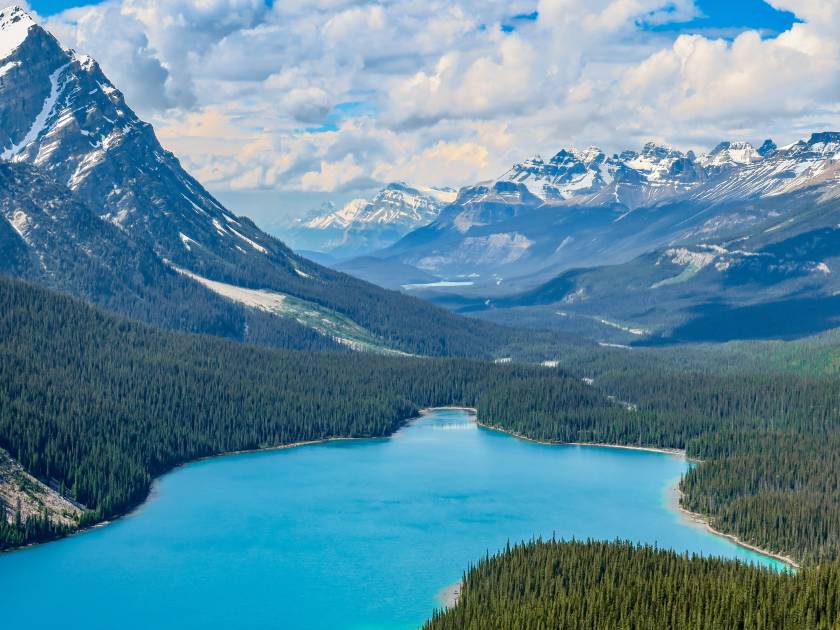
3. Tour du Mont Blanc, France
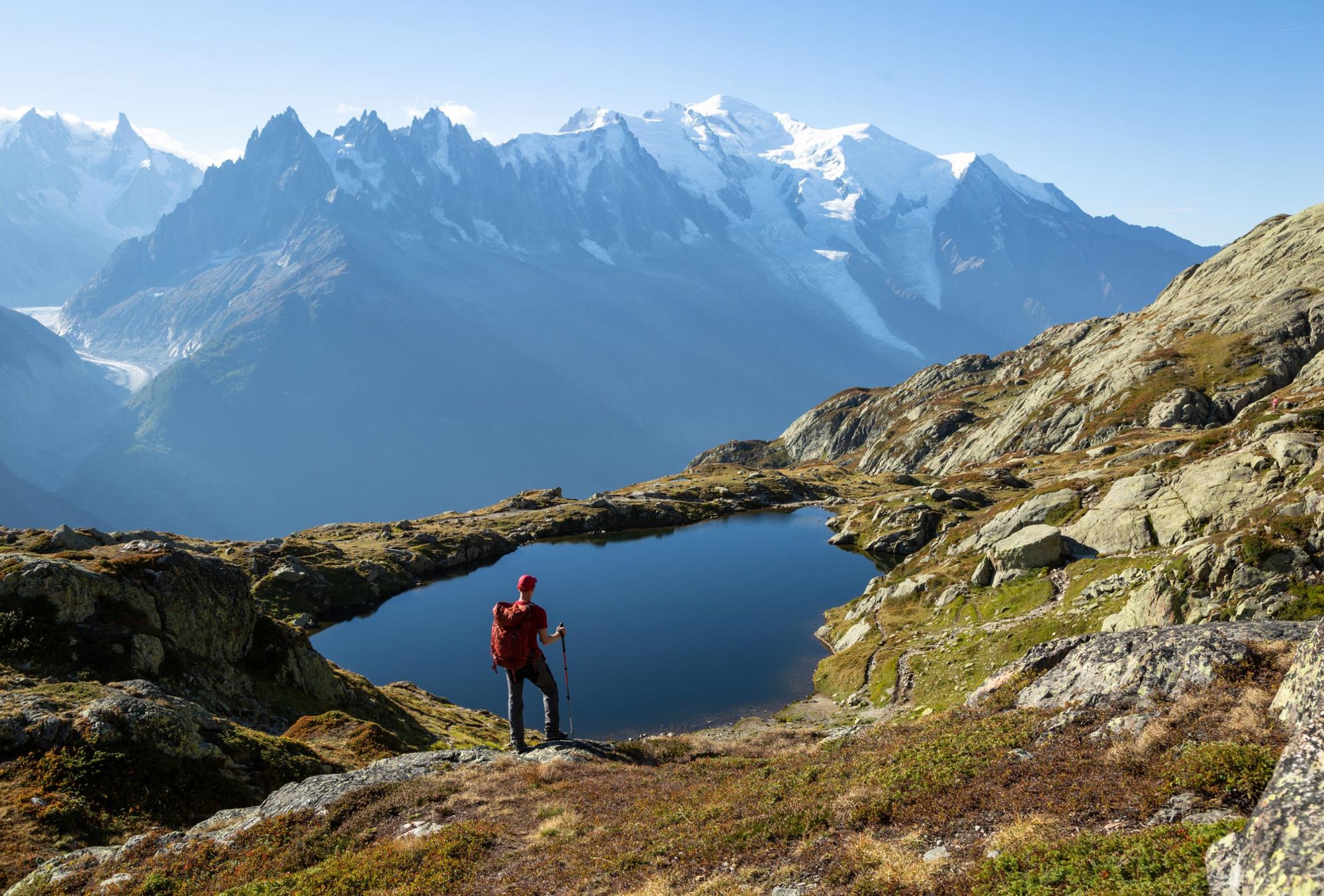
- Season: Summer
- Temperature: 22°C high, 7°C low (for Chamonix)
- Time zone: GMT+2
- Currency: Euro
- Best for: A classic route in the Alps
Few mountains in Europe are more iconic than Mont Blanc, and few long-distance hikes on the continent are more iconic than the hiking route around it - the legendary Tour du Mont Blanc.
This 105-mile (170km) trekking route crosses three counties (Switzerland, France and Italy), taking in the twin valleys of Val Ferret and looking out over Mont Blanc, Dent du Géants and the Grandes Jorasses. You’ll climb the Col de Balme (2,190m/7,185ft) and traverse Aiguillettes des Posettes on a delightfully-exposed section of trail. Spend your nights playing cards in mountain refuges, regaling the day’s adventure. June is the perfect time to walk the trail, when the alpine flowers are in bloom, but before the heaviest crowds come in summer.
How to Get There? Chamonix, the gateway to Mont Blanc and the tour, is just over an hour’s drive from Geneva Airport. It can also be reached on the train from Paris with two changes.
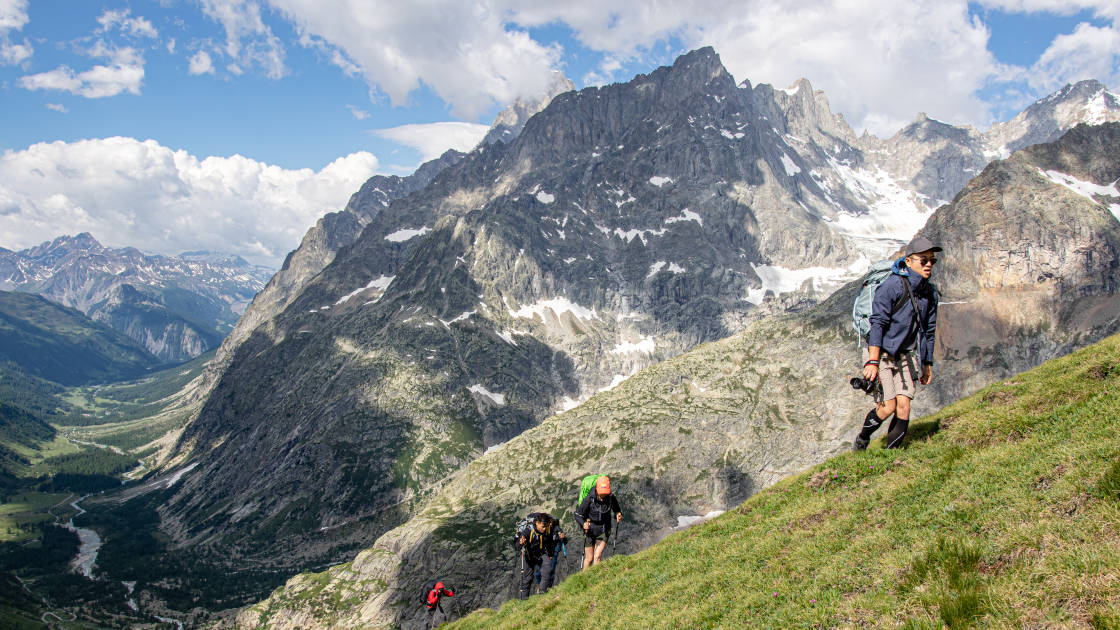
4. The Azores, Portugal
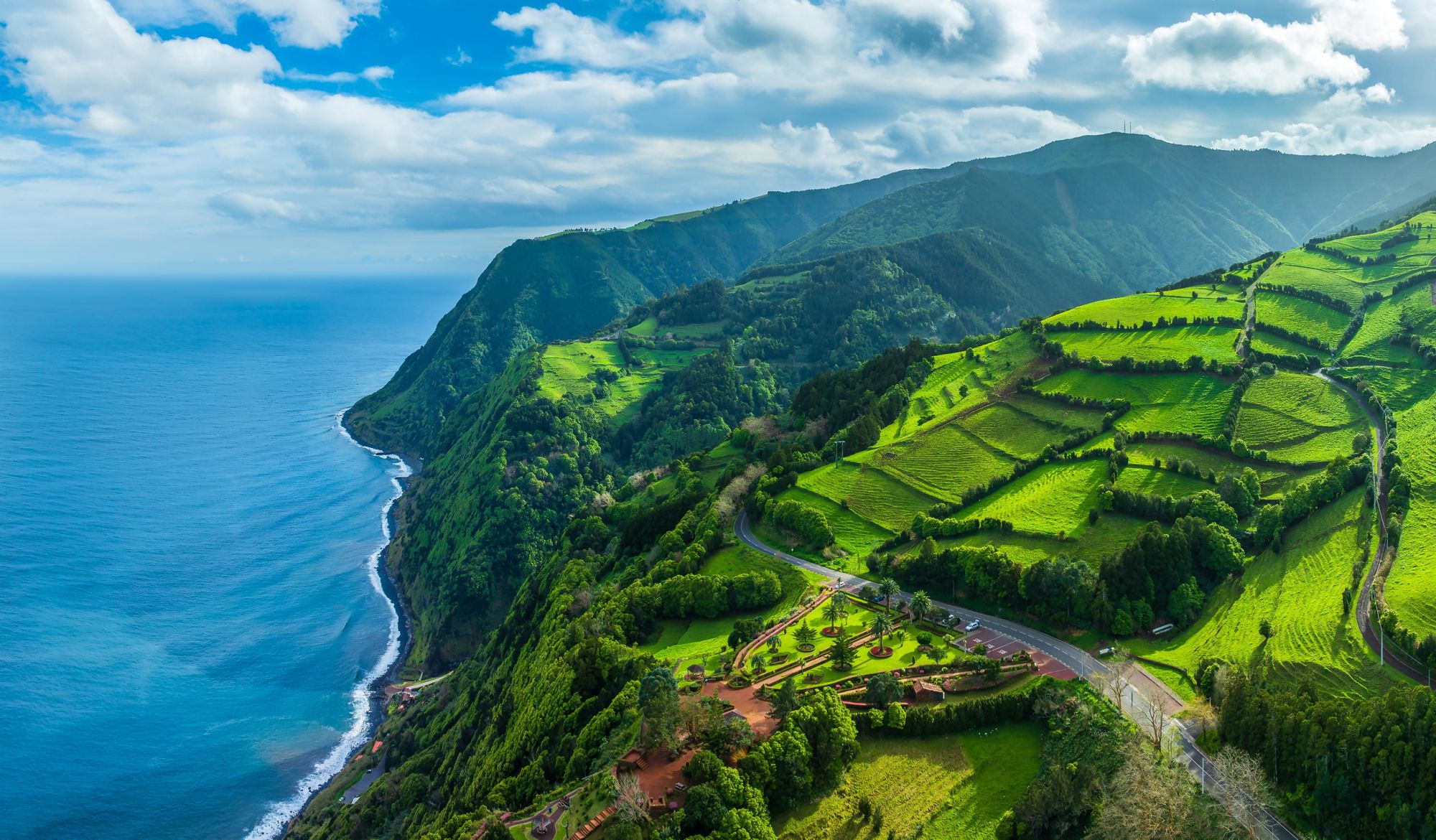
- Season: Summer
- Temperature: 24°C high, 15°C low
- Time zone: GMT-1
- Currency: Euro
- Best for: A far-flung European adventure
The Azores are the most remote outpost of the European Union - an archipelago of nine islands (and autonomous region of Portugal) boasting volcanic craters, lush green forests, fertile orchards and, of course, dramatic coastlines with views of the Atlantic Ocean. You may already know all of this. But what you may not know is that the Azores also has an absolutely excellent range of hiking routes, which are well waymarked and advertised, across the nine islands.
Walk to Pico da Vara, the highest point on the most populous island of the Azores, São Miguel. You’ll be going through laurisilva forest, grasslands and you’ll earn views of the crater of the Furnas Volcano. Hike the highest mountain in all of Portugal - Pico Mountain (2,531m/7,713ft) - on the island of Pico or take a coast-to-coast hike on Faial, starting your day in lush greenery and finishing in the otherworldly, volcanic landscapes around Capelinhos Volcano on the island.
How to Get There? Fly into Ponta Delgada Airport on São Miguel Island.
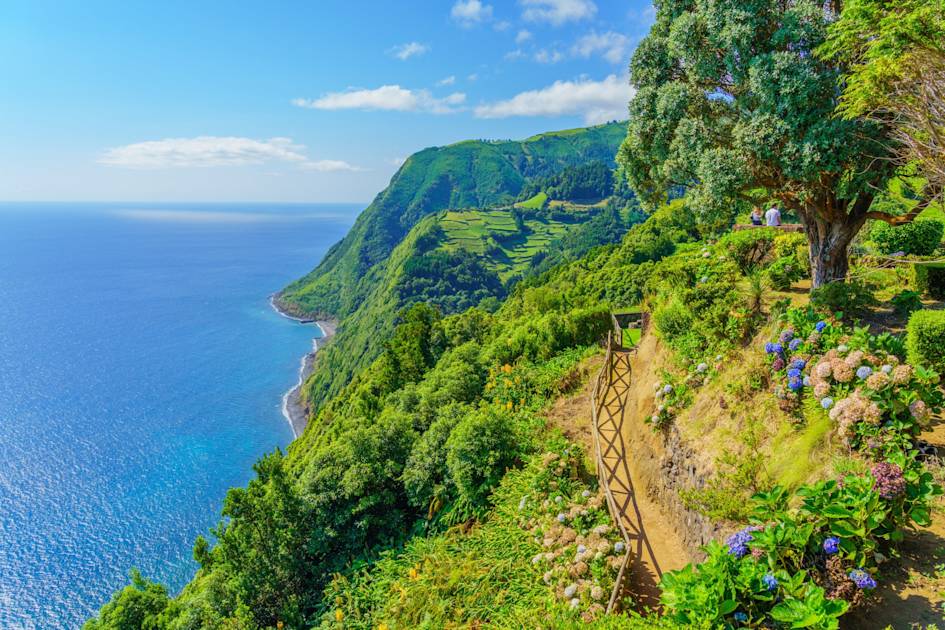
5. Visit the Norwegian Fjords
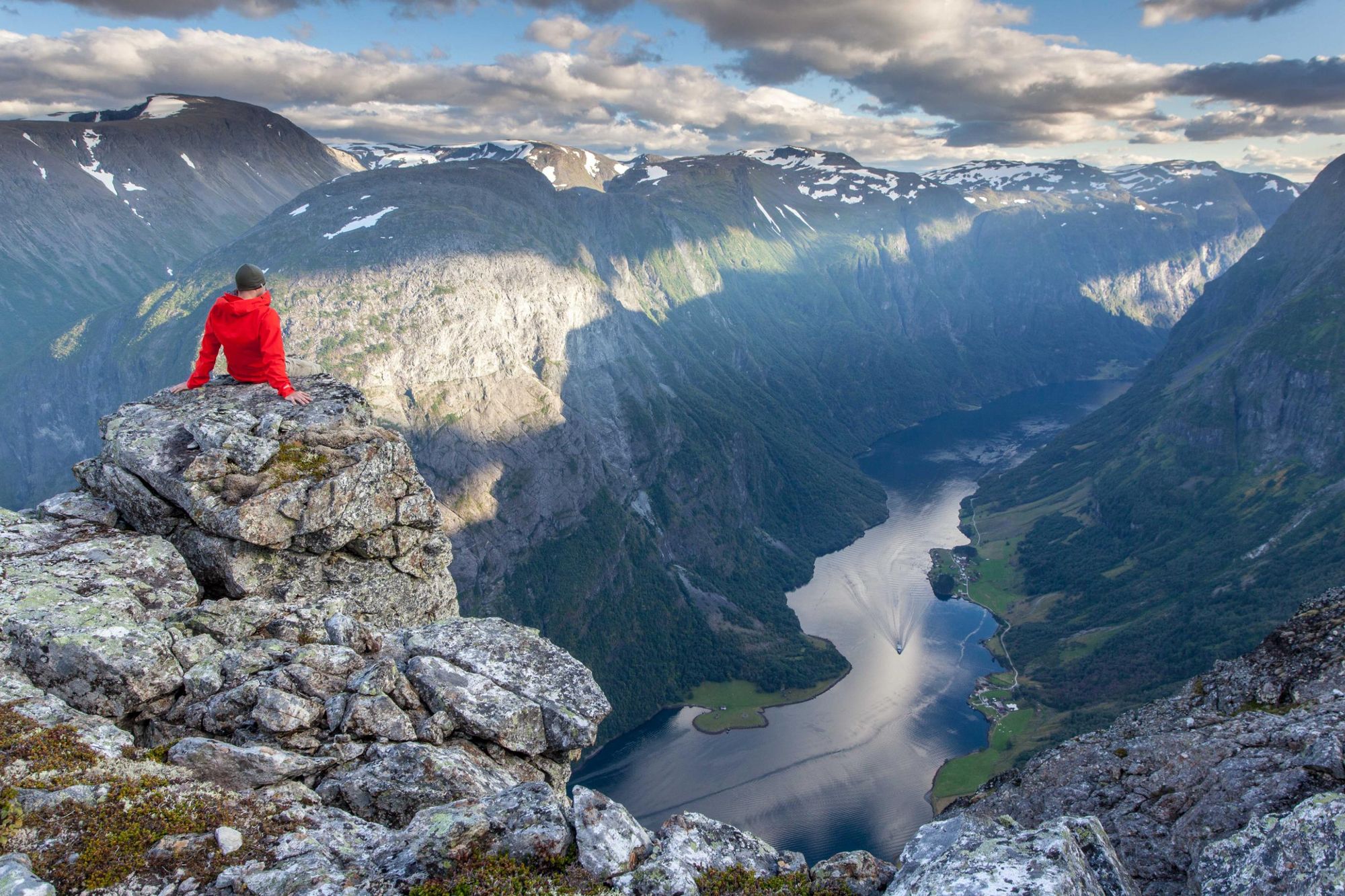
- Season: Summer
- Temperature: 18°C high, 9°C low (for Bergen)
- Time zone: GMT+2
- Currency: Norwegian Krone
- Best for: Paddling perfection
When I first visited the Norwegian fjords I was blown away by their primordial beauty. The beauty of the fjords precedes them, but it’s difficult to really get across just how remarkable this landscape is without seeing it for yourself.
Explore them by kayak or canoe and you'll really feel your own smallness...
This is a place where sheer cliff faces rise steeply out of the Norwegian Sea, creating utterly serene natural environments sheltered off from the world. Explore them by kayak or canoe and you'll really feel your own smallness (in that good, spiritual way) as you move through these landscapes, stopping to take in waterfalls, watch seals or pitch a tent for the night.
Our favourite fjord for paddling is the Nærøyfjord - which is 10.5 mile (17km) long and at parts is only 250m wide. This not only means the cliffs are right on top of you as you paddle, but that the fjord itself is too narrow for big cruise ships. So you might just have the whole fjord to yourself.
How to Get There? Fly to Bergen, Norway. Gudvangen is a two-hour drive from there.

6. Madeira, Portugal
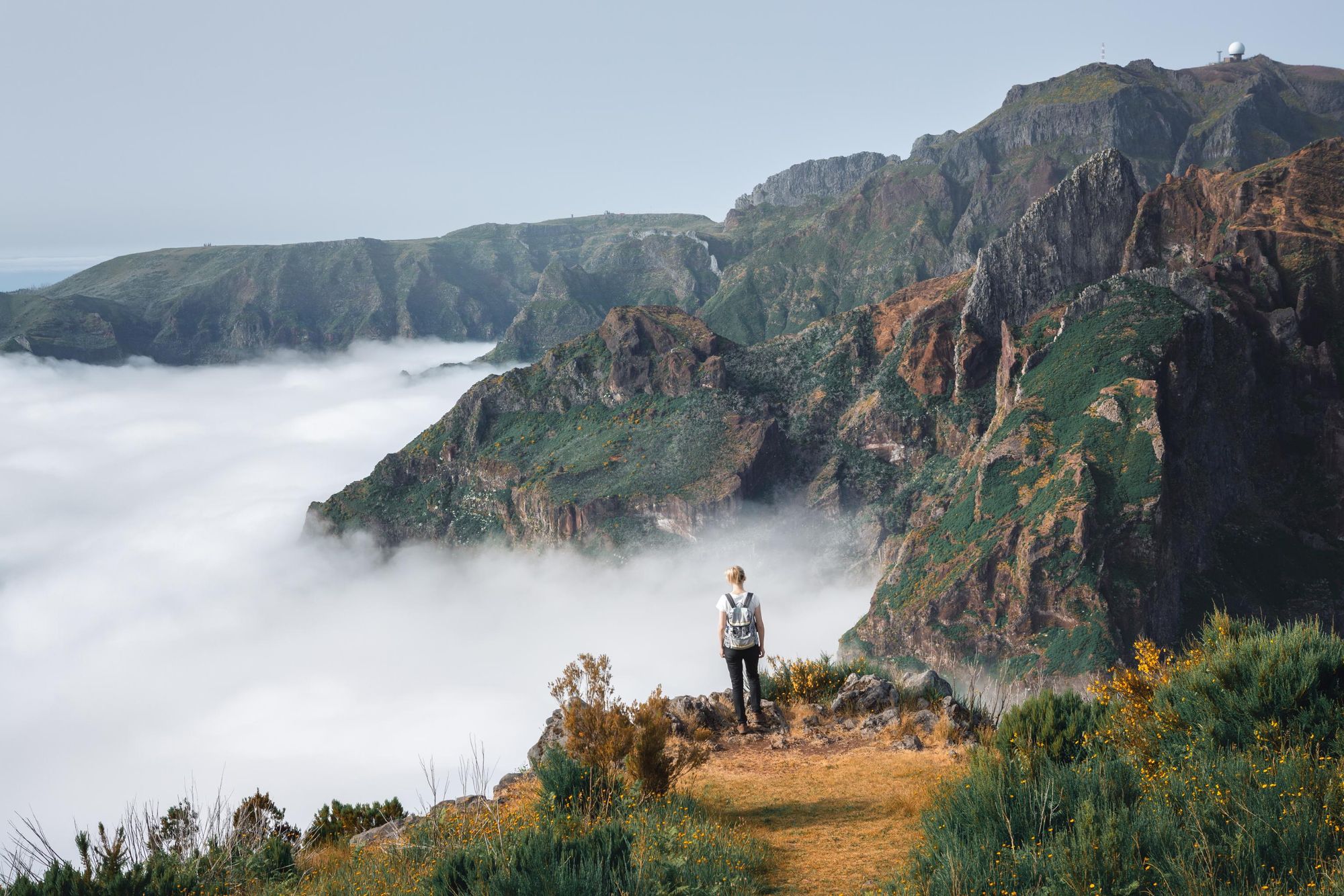
- Season: Summer
- Temperature: 25°C high, 16°C low
- Time zone: GMT+1
- Currency: Euro
- Best for: Multi-activity adventures
Madeira has ditched its tag as a place for sun-seeking retirees or loved-up honeymooners. These days, Madeira - the island of eternal spring - is a fully-fledged adventure destination. There are waymarked levada walks, which follow ancient irrigation systems through UNESCO-protected forests. There are mountain climbs, with excellent infrastructure up near the summits, which will lead you to views out over the island from thousands of metres up.
Down by the ocean there are world class waves and excellent instructors waiting to guide you, and the laurel forests are punctuated by canyons which form natural play parks. At the end of the day? Drink a glass of poncha and relax.
Interested in more on Madeira? I recently wrote up a bunch of tips for visiting the island of Madeira and you can also check out my favourite hikes in Madeira.
How to Get There? Fly into the island airport, named after the footballer Cristiano Ronaldo.

7. The Volcanoes of Guatemala
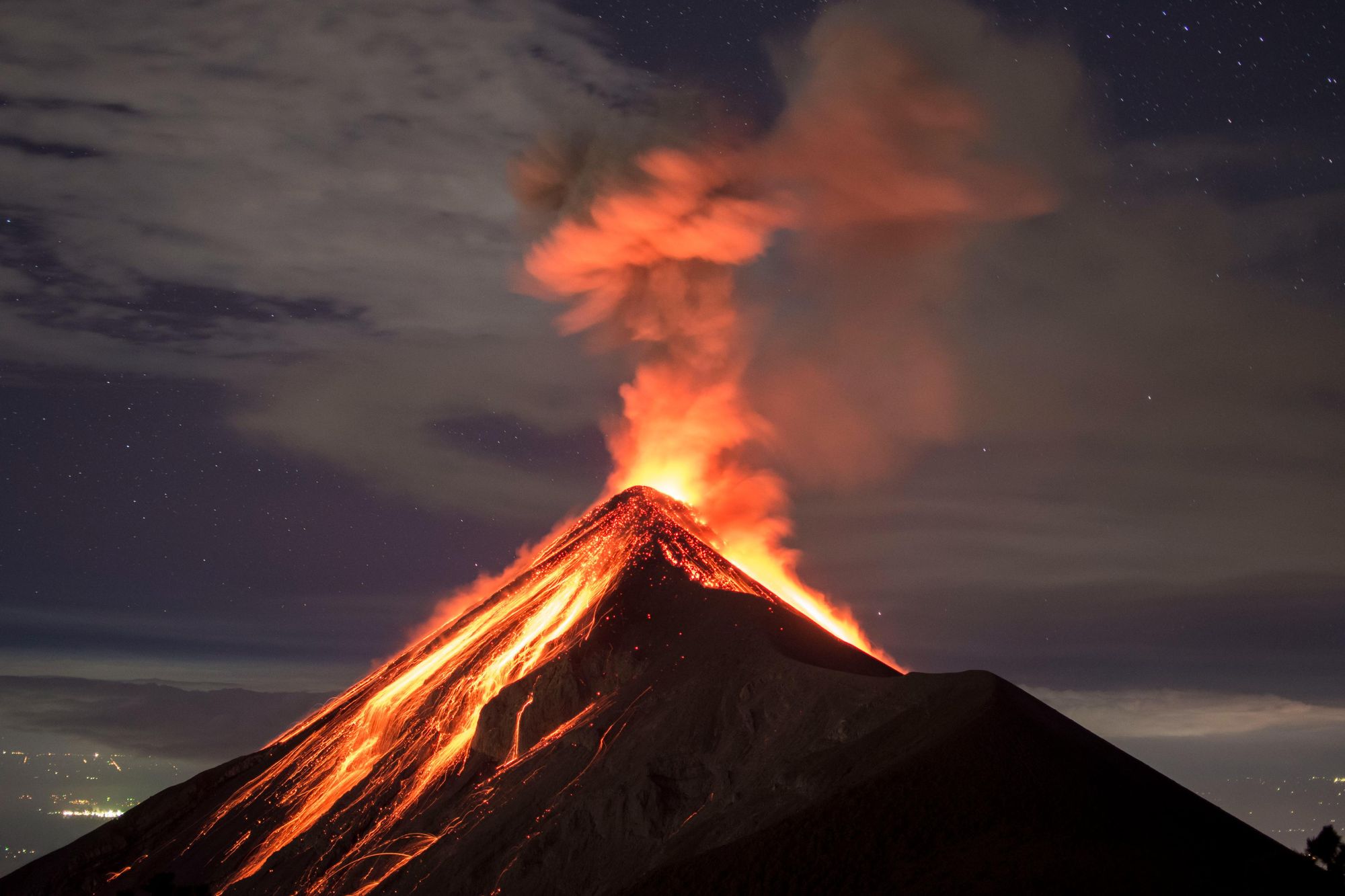
- Season: Rainy season
- Temperature: 28°C high, 15°C low
- Time zone: GMT-6
- Currency: Guatemalan Quetzal
- Best for: Seeing an active volcano
Ever wild camped in view of an erupting volcano before? If the answer is yes, we’re guessing you’ve been to Guatemala. And if the answer is no… well, you should go.
Climb up Acatenango volcano (a guide is highly recommended) and pitch a tent en route - around 3,750m (9,022ft) - and you can spend the night watching the neighbouring Volcán de Fuego continuously erupting through the night, belching lava and folk into the sky, from 2.5 miles (4km) away. It’s sort of like ASMR, except it’s more visceral and you shouldn't try to reach out and touch it.
You can do this climb as part of a loop which allows you to climb five volcanoes in Guatemala.
How to Get There? Start your adventure by flying to La Aurora International Airport, Guatemala City.
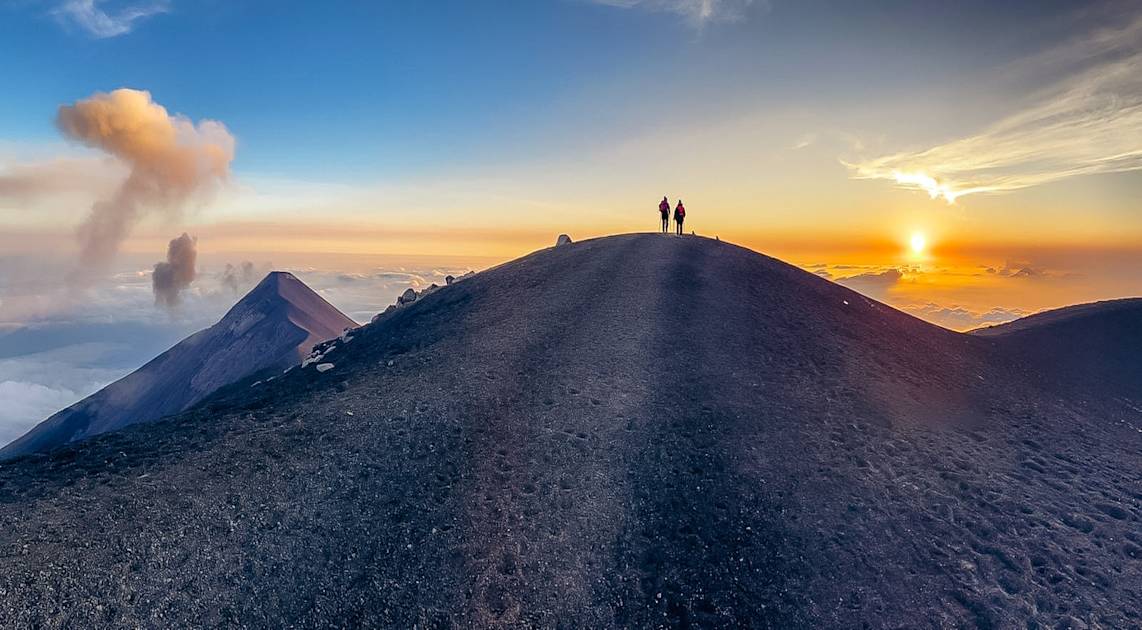
8. Alaska, USA
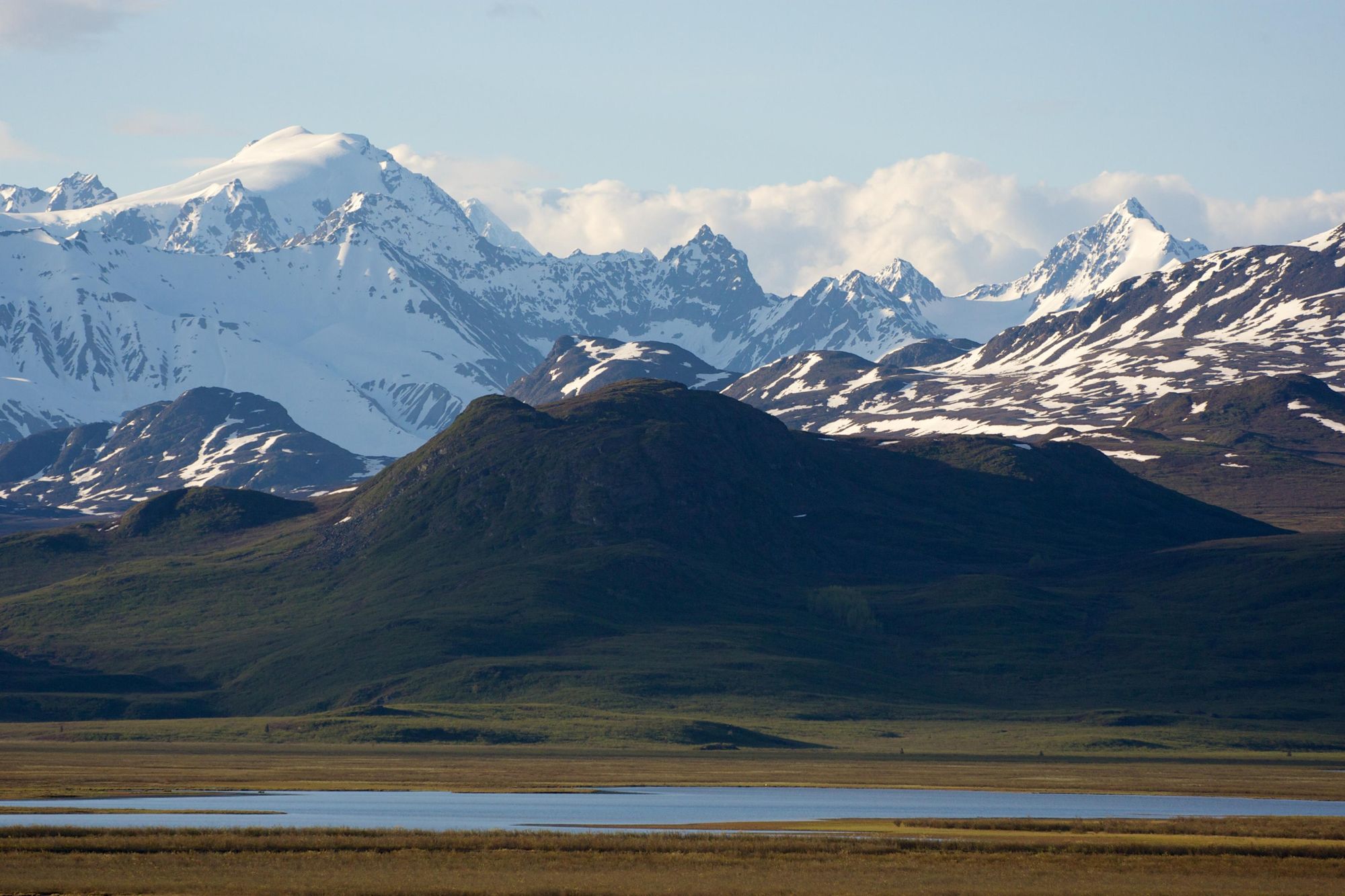
- Season: Summer
- Temperature: 19°C high, 4°C low
- Time zone: GMT-8
- Currency: US Dollar
- Best for: Big, expansive viewpoints
Alaska. Say the word out loud. It’s got a bit of magic to it, doesn’t it? Say ‘Alaska’; read the word ‘Alaska’; think about the landscape of Alaska, and any adventurer will get goosebumps. This is one of the great wildernesses of the world.
This is an immense landscape, impossible to navigate without expert knowledge, unmatched in grandeur.
Journey into Denali National Park - home to the eponymous mountain, which is the largest in North America - and it's expedition time. Kayak along the Alaskan coastline, past crackling glaciers and waterfalls. Take a jet boat up the Maclaren River and you’ll find some of the most remote wild camping opportunities you’ll ever have; where moose, caribou and bears roam. This is an immense landscape, impossible to navigate without expert knowledge, unmatched in grandeur.
How to Get There? Fly into Anchorage International Airport to start your Alaskan adventure.

9. Trek a New Camino, Costa Rica
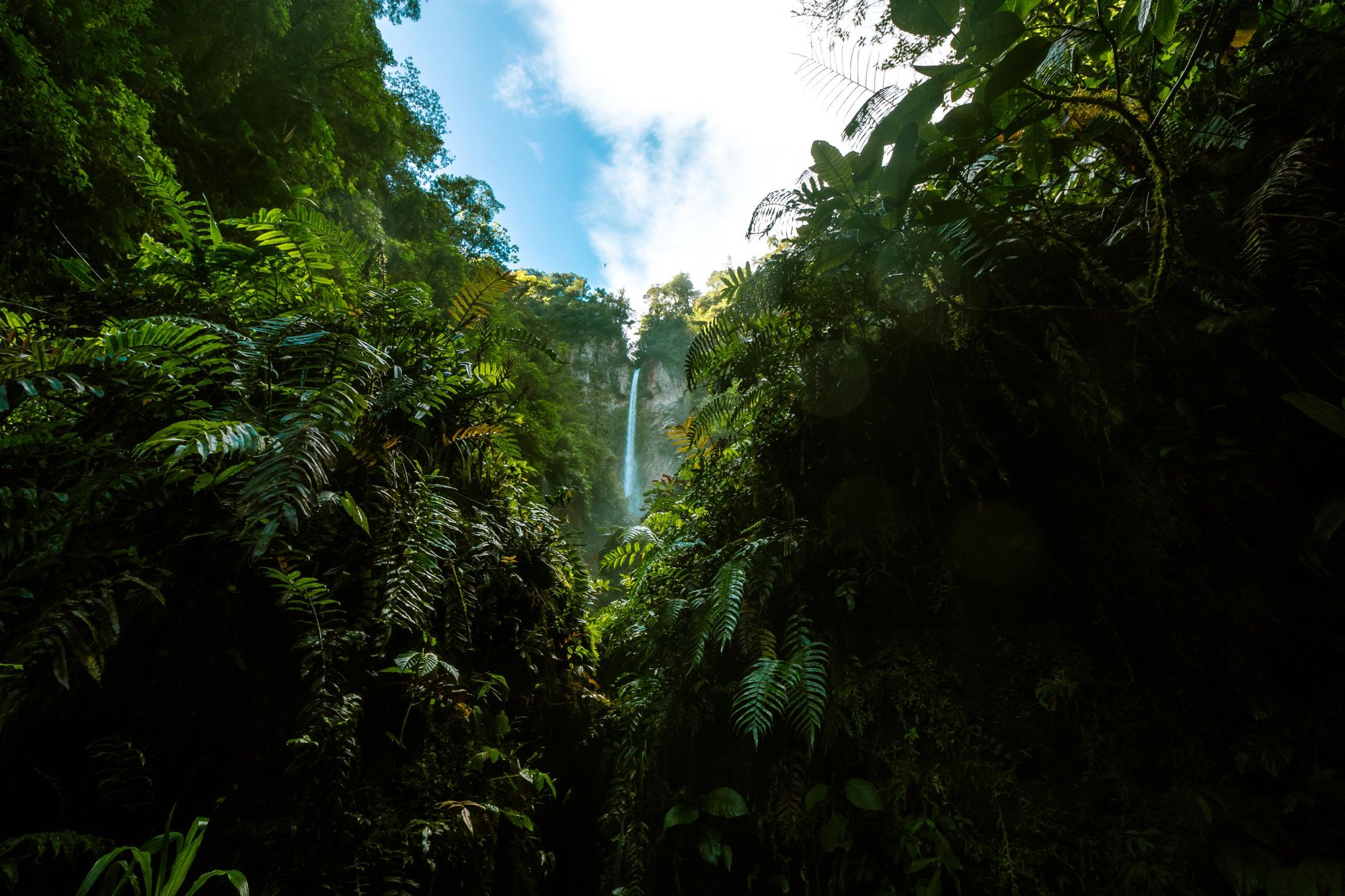
- Season: Rainy (Green) season
- Temperature: 32°C high, 15°C low
- Time zone: GMT-6
- Currency: Costa Rican Colón
- Best for: Sloth sightings!
Inspired by its famous Spanish namesake, the Camino de Costa Rica is a relatively new, long-distance hiking route which stretches 174 miles (280km) coast-to-coast in Costa Rica, through the mountains and lush, loud rainforests of one of the world’s most biodiverse countries.
The route takes you from the Caribbean coast in Barra de Parismina, on the shores of the Atlantic, through national parks and indigenous territory (where you will be guided by Cabécar guides), before finishing in Quepos on the western coast, looking out over the Pacific Ocean.
That’s a whole lot of jungle, dusty mountain passes, two oceans and sloths ahoy. Plus, you'll be walking coast to coast across a whole continent. Pura vida!
How to Get There? Fly into Juan Santamaría International Airport, San José.
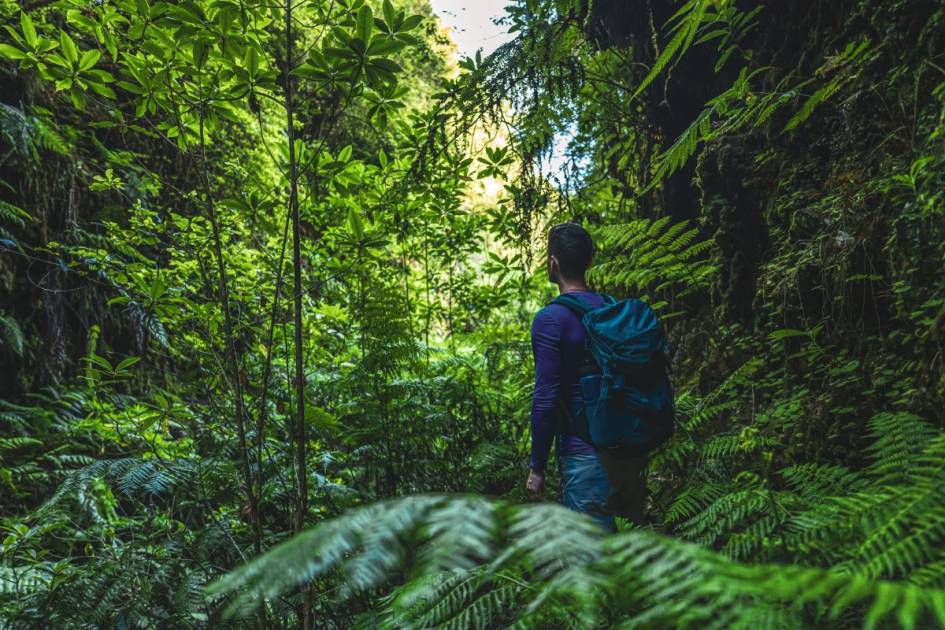
10. Theth, Albania
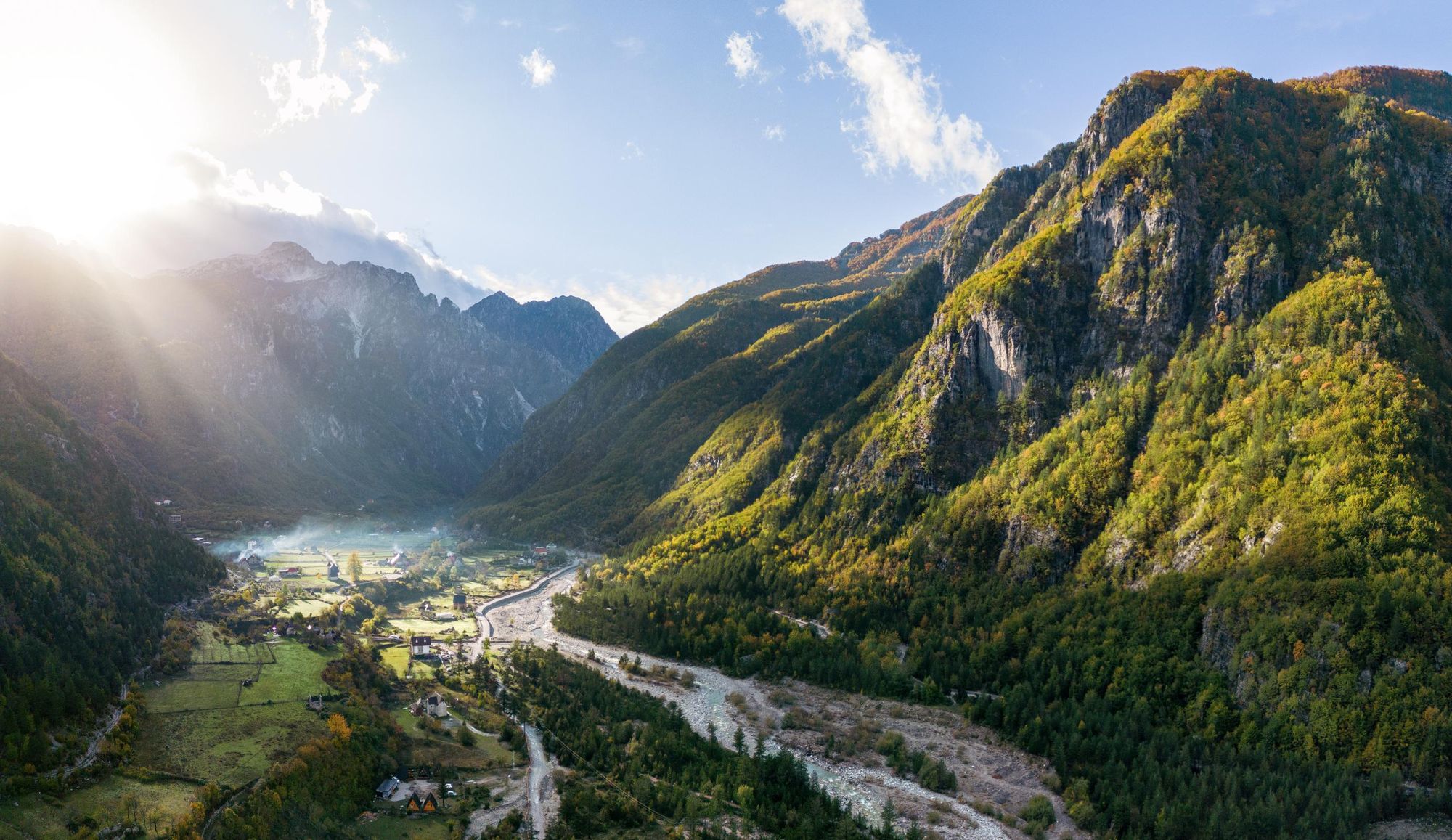
- Season: Summer
- Temperature: 25°C high, 10°C low
- Time zone: GMT+2
- Currency: Albanian Lek
- Best for: Off-the-radar hiking in Europe
A lot of people do not realise that Albania has sublime mountains. So here we are, writing this sentence to tell you just that: Albania has sublime mountains.
Head to the Albanian Alps, also dramatically-known as the Accursed Mountains, and you’ll find a remarkable range as beautiful as any other alpine set in Europe. Word is catching on, so this area can get busy in summer, but go in June and you’ll beat a lot of the peak crowds. And the tourist numbers are still simply nowhere near the likes of the French Alps or the Dolomites even in high season.
The Balkan 3 Peaks Challenge is a popular hiking route which will see you scramble to the top of Mt Gjeravica (2,656m/8,713ft), Mt Zla Kolata (2534m/8,313ft) and the shared summit of Mt Korab (2764m/9,068ft), taking in the high points of Albania, Kosovo, Montenegro and North Macedonia. Stick around in Theth after to relax in a dreamy alpine town, surrounded by peaks.
How to Get There? There’s an international airport in Tirana, from where you can drive or take a bus to Theth and the Albanian Alps.
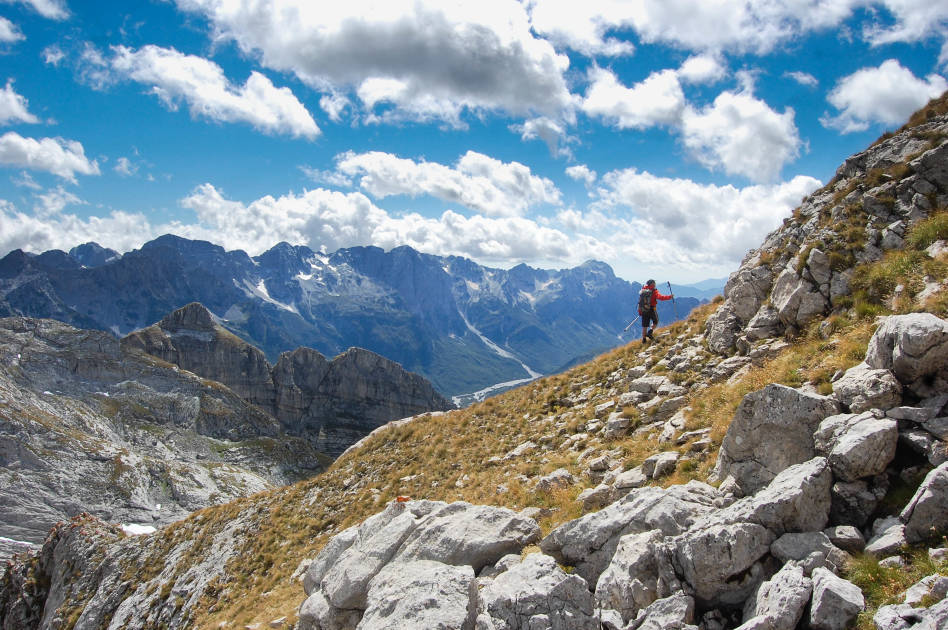
11. The Prosecco Hills, Italy
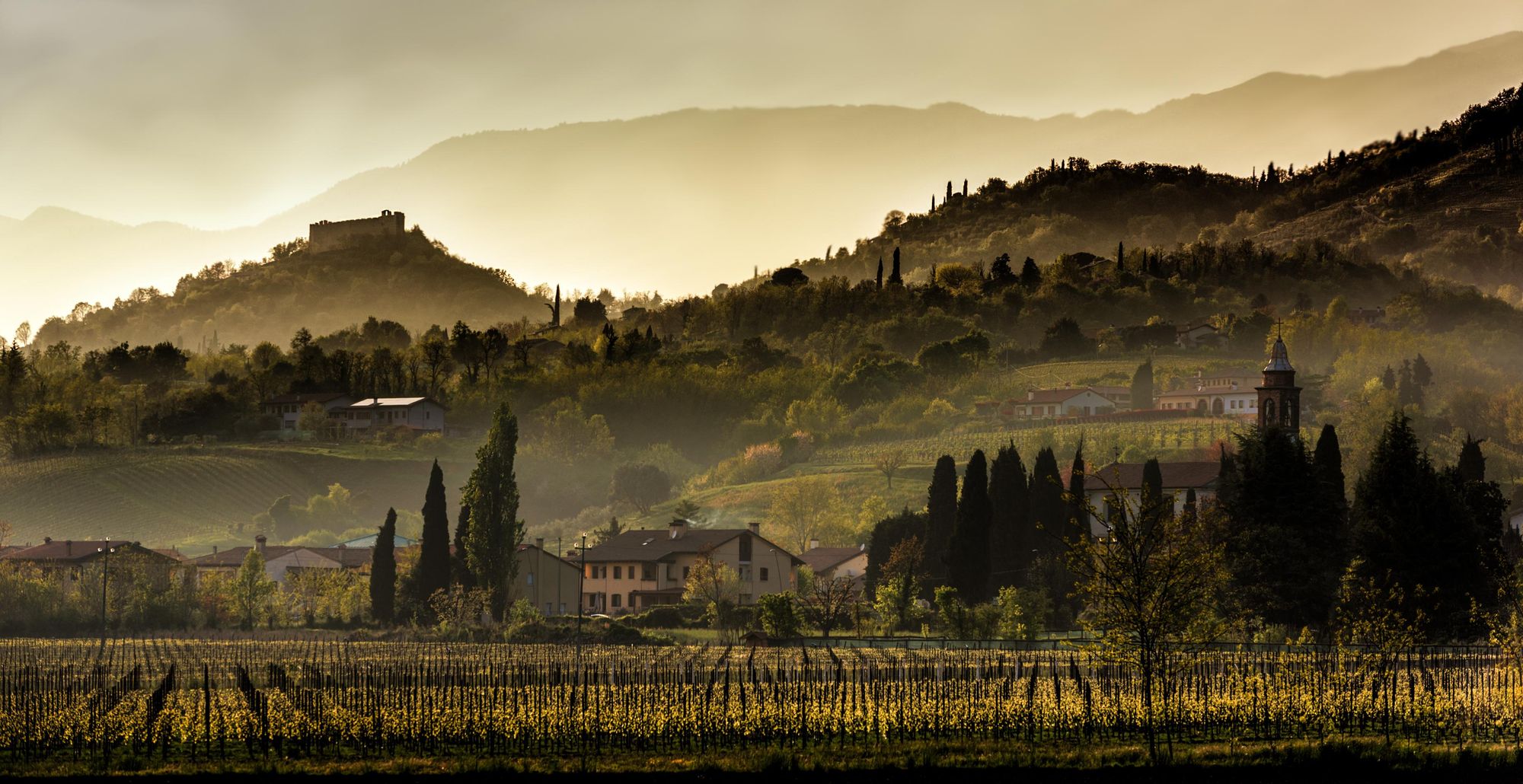
- Season: Summer
- Temperature: 29°C high, 15°C low
- Time zone: GMT+2
- Currency: Euro
- Best for: Prosecco lovers (duh)
Prosecco might be one of the most famous drinks in the world, but the place where it is made - the Prosecco Hills - remains one of Italy’s best kept secrets.
This moniker is the name given to the districts of Conegliano and Valdobbiadene, which sit about an hour north of Venice. It’s a region of steep hills, carpeted in vines and set against the mountainous backdrop of the Pre-Alps. All of this means that it is both excellent for exploring on bike or foot, and it is world class for local wine. If you’re looking for a light adventure holiday where you take in some beautiful, quiet areas, and eat and drink ridiculously well, this is it.
“It's still an area to be discovered,” explains Vania De Paoli, a local guide. “There's a good mix between nature tourism, with quiet hiking and cycling trails to be explored, and of course there’s the wine and the sumptuous food.”
How to Get There? Typically people fly into either Venice Marco Polo Airport or Treviso Airport. From both, you can easily sort a shuttle bus in advance to get you to the Prosecco Hills area.

12. Lofoten, Norway
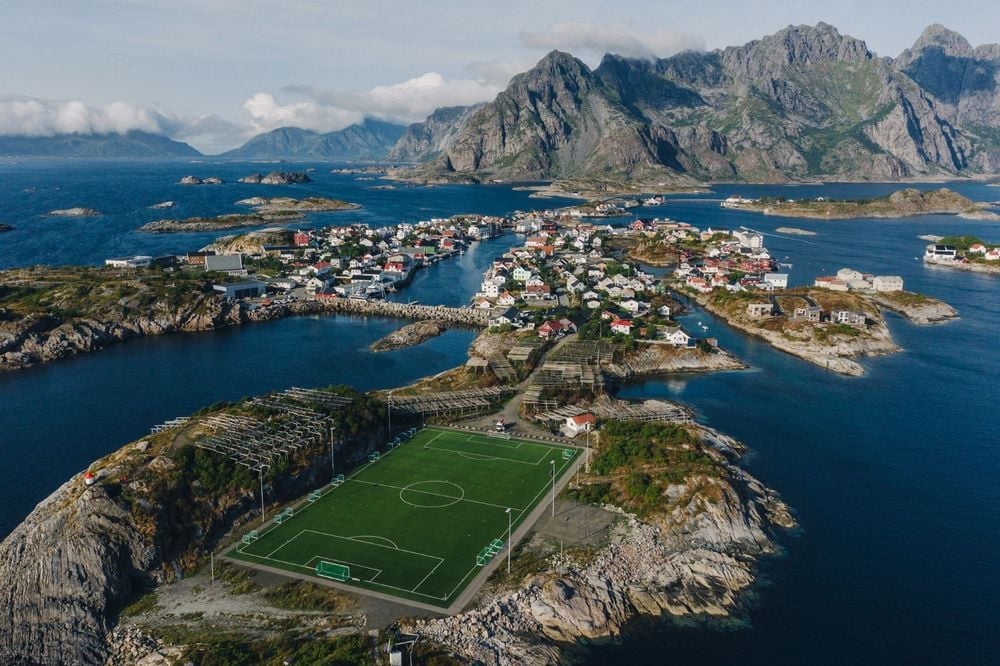
- Season: Summer
- Temperature: 15°C high, 6°C low
- Time zone: GMT+2
- Currency: Norwegian Krone
- Best for: The extreme side of Europe
The Lofoten Islands are one of those places that look so ridiculously, stupidly beautiful that it'd be easy to think they were some fake CGI-designed world.
Picture sprawling islets, connected by little roads, dotted with colourful houses and surrounded by the deep blue of the North Atlantic. Now, make that scene backdropped by rugged, steep mountains which connect into serrated ridgelines, and you’ve just about got the view.
The fact that Lofoten is an adventure paradise is obvious. The only question is how best to explore it? Kayak past the mountains and through fishing villages and you can spot dolphins, puffins or orcas up close. Wild camp on one of the islets and you’ll discover the beauty of sunset and sunrise in the far north. And of course, all those mountains lend themselves to a lot of hiking as well. We tend to combine all of the above for a multi-activity adventure in Lofoten.
How to Get There? The regional airport of Leknes serves the Lofoten archipelago. You may need to switch in Oslo or Bergen.
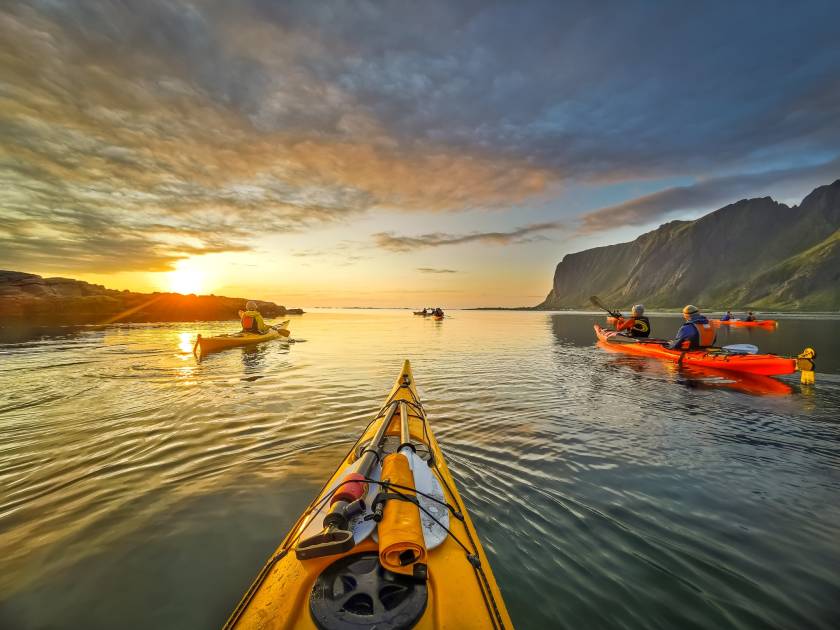
13. The Dolomites, Italy
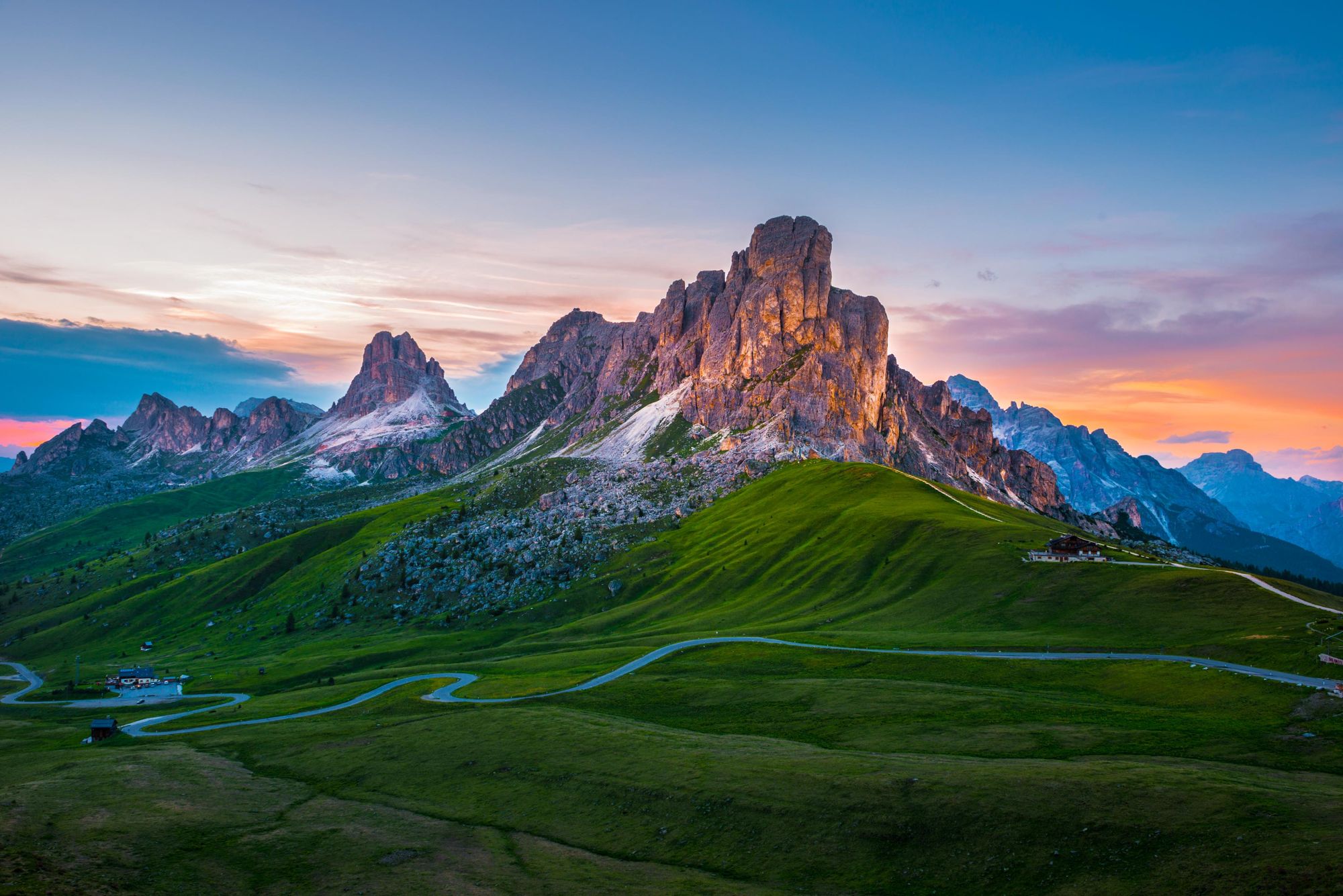
- Season: Summer
- Temperature: 24°C high, 8°C low
- Time zone: GMT+2
- Currency: Euro
- Best for: An Italian alpine adventure
The Dolomites are the mystical mountains of Europe; sometimes rolling, other times rugged, they are the remarkable rock formations of northern Italy, best known for their sharp peaks, which often jettison off from the rock bulk below and stretch out as though they’re aiming to pierce the sky itself.
There are many incredible walking routes through the Dolomites, two of the most famous being the Alta Via 1 and Alta Via 2 - two long-distance, waymarked routes which stop at excellent mountain refuges along the way. Highlights include walking beneath the pinnacles of Civetta (3,220m/10,498ft) and the mass of Marmolada (3,343m/10,967ft) passing the glittering glacial waters of Lake Coldai. There are WW1 bunkers built into these mountains and you will see some on the trails. This is an all-encompassing place for a mountain hike.
How to Get There? Reach the Dolomites from Venice Marco Polo or Verona Airport.
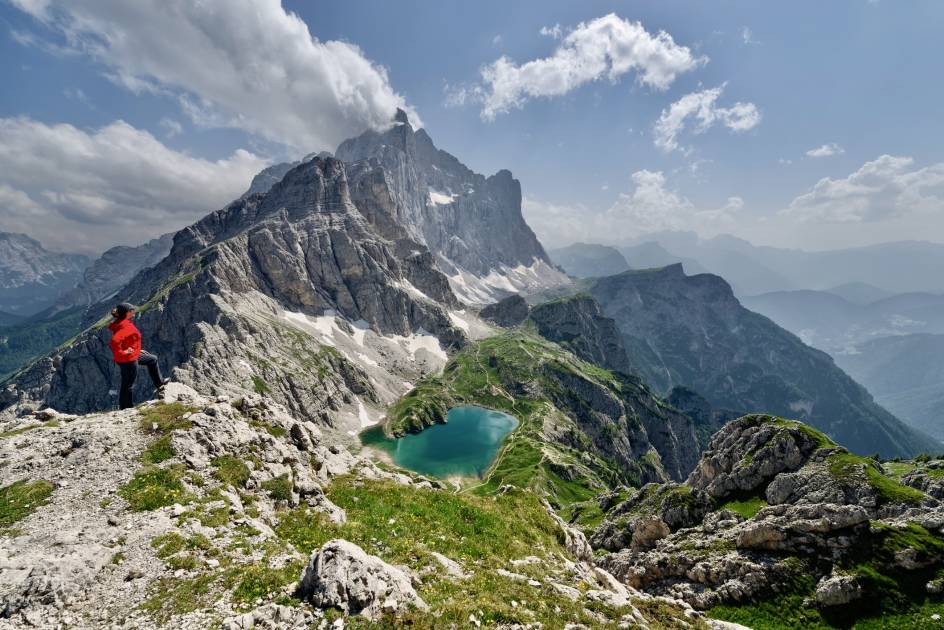
14. The Seven Capes, Turkey
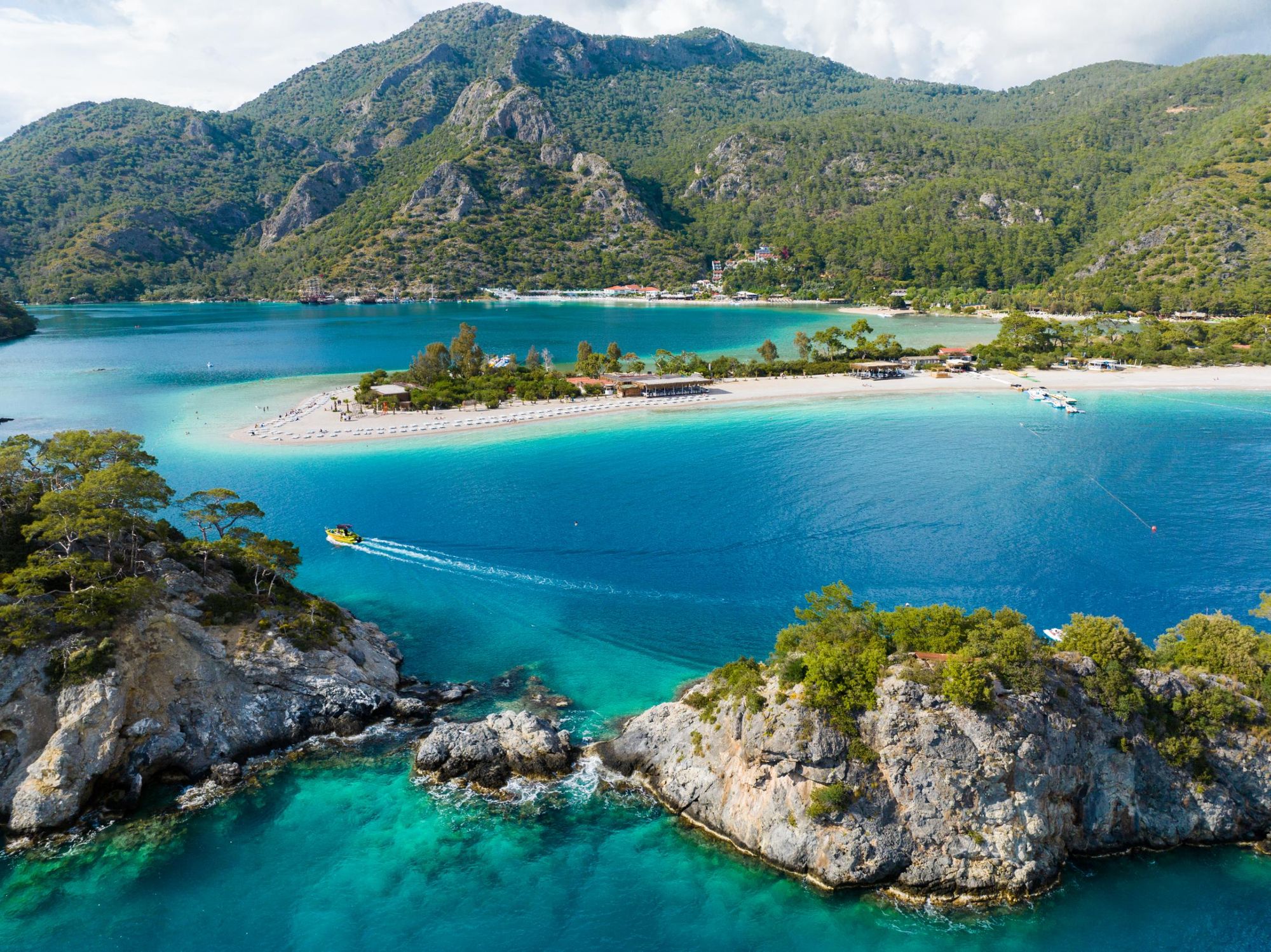
- Season: Summer
- Temperature: 32°C high, 19°C low
- Time zone: GMT+3
- Currency: Turkish Lira
- Best for: Mixing historic wonder and scenic beauty
The Aegean Coast of Turkey stretches from near Istanbul all the way along to the resort town of Marmaris. Along the way, there are curving coastlines, ruins to discover, secluded coves, deserted beaches and a whole lot of turquoise water to paddle through. Now, on land there is a route which follows this coast. It's called the Lycian Way, it's quite famous, and it’s a full 35-day 472-mile (760km) walk.
Leave the hiking boots, though. There’s nothing to stop you following that same route from the water (or at least biting off a little bit of it). Travel from the ghost village of Kayaköy and the harbour town of Fethiye to Patara and you can find true tranquillity on these waters, and a whole lot of adventure to boot.
How to Get There? Fly to Dalaman Airport or Antalya Airport, then take a two-hour transfer.

15. Durmitor National Park, Montenegro
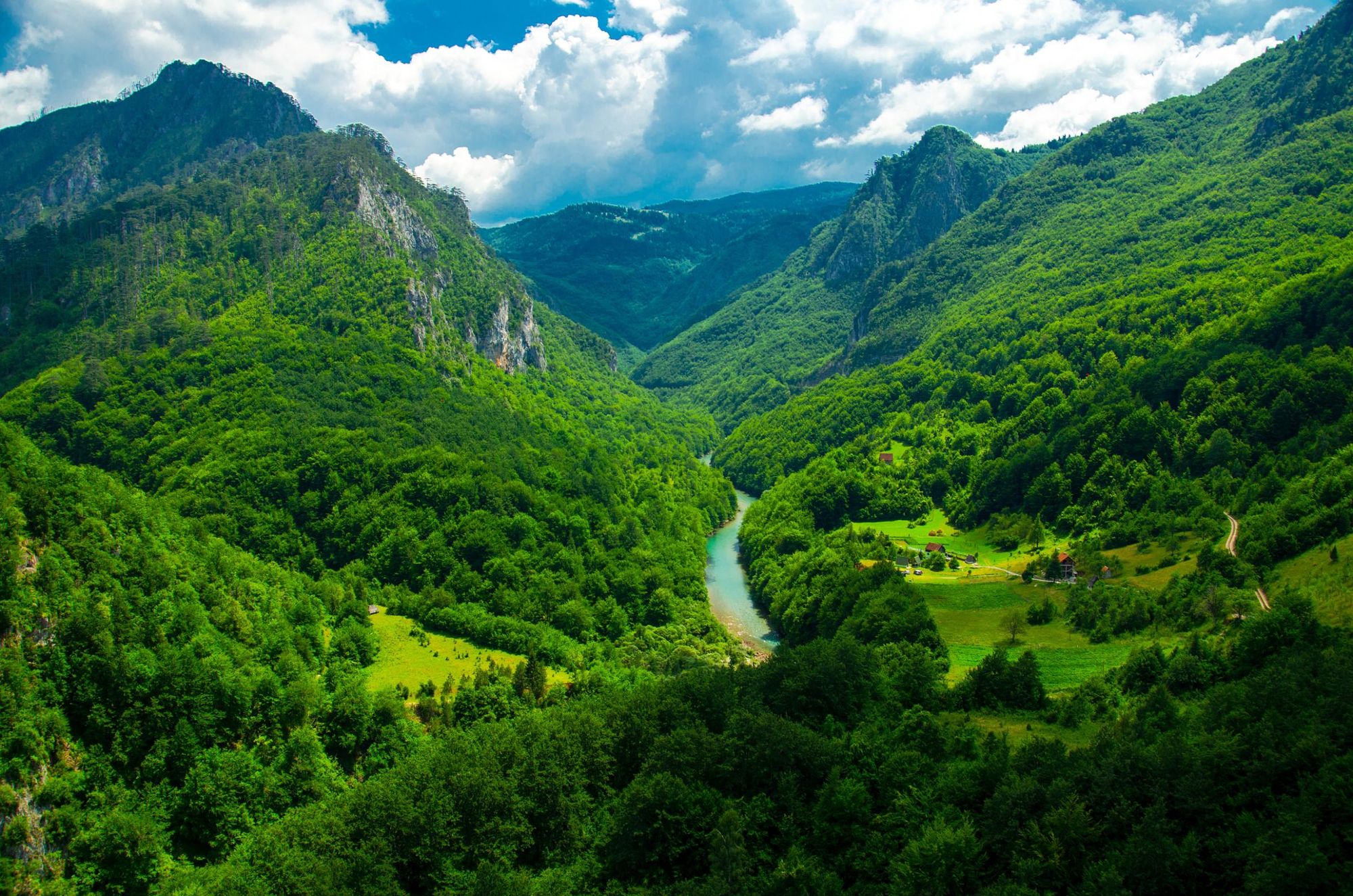
- Season: Summer
- Temperature: 30°C high, 15°C low
- Time zone: GMT+2
- Currency: Euro
- Best for: Lush greenery
Montenegro is a country with remarkable depth, from the Roman, Byzantine, Ottoman and Venetian history to delicacies like Njeguški pršut (smoke ham) and čorba soups. But what makes people fall completely in love with this country so often is the beauty of the landscape.
The name ‘Montenegro’ actually translates as ‘Black Mountain’, and from the Dinaric Alps to the Tara River Canyon and UNESCO-protected Bay of Kotor, there is so much to discover. Step into the Durmitor National Park - also UNESCO-protected - and you’ll find a world of glacial lakes, deep canyons and lush green forests. Climb the highest peak of the Durmitor massif, Bobotov Kuk (2,523m/8,277ft), and you’ll earn unmatched, 360-degree views out over all of it.
How to Get There? Start your adventure in Podgorica Airport, in the capital of Montenegro.
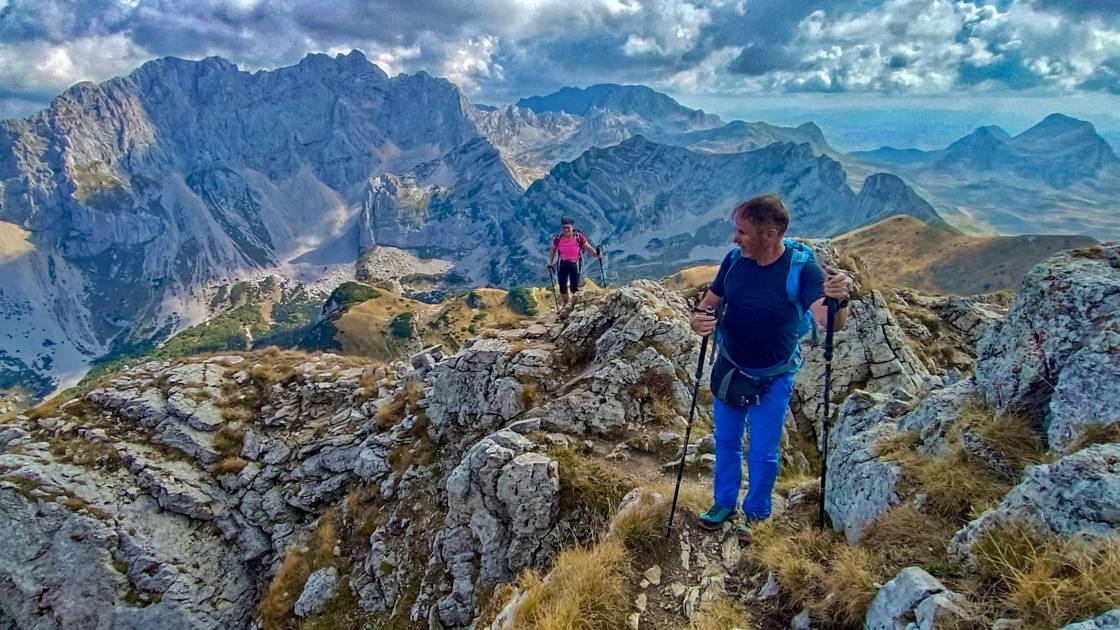
16. The Pindus Mountains, Greece
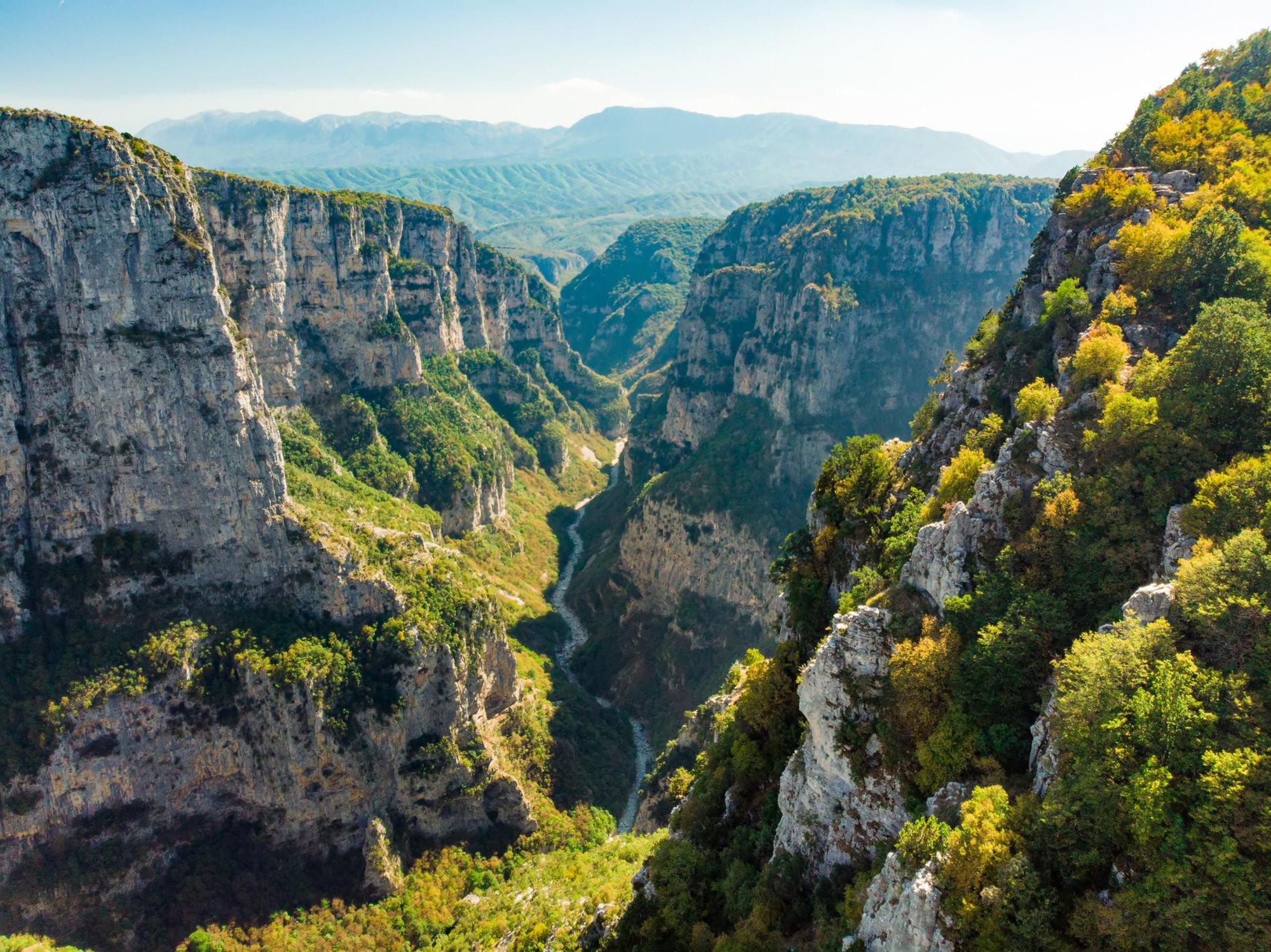
- Season: Summer
- Temperature: 28°C high, 10°C low
- Time zone: GMT+3
- Currency: Euro
- Best for: Bear-watching and forest hikes
Hands in the air if you knew that Greece had a population of bears? Don’t worry if you didn’t. For one, that was a rhetorical question (if you are sitting in front of your laptop with your hand raised, you may now put it down). And second of all, most people don’t know about the bears. In fact, most people have never heard of the Pindus Mountains (where those bears hang out) at all. It’s a range in northern Greece where limestone cliffs meet deep valleys and winding rivers.
Hike through the Vikos Gorge, the second-deepest gorge in the world, head to the alpine zone of the mountains, and relax in natural pools after a big day on the mountain - naturally, keeping an eye out for the wildlife. In June, the trails are clearer here, and the weather is ideal, before the baking summer heat kicks in.
How to Get There? The nearest international airports are in Athens or Thessaloniki.
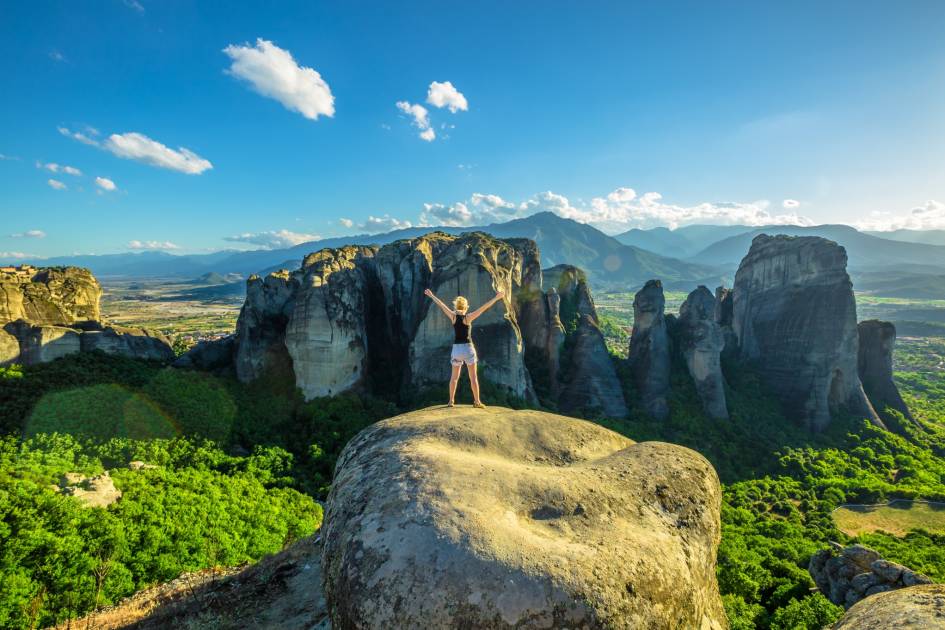
17. Teyuna (The Lost City), Colombia
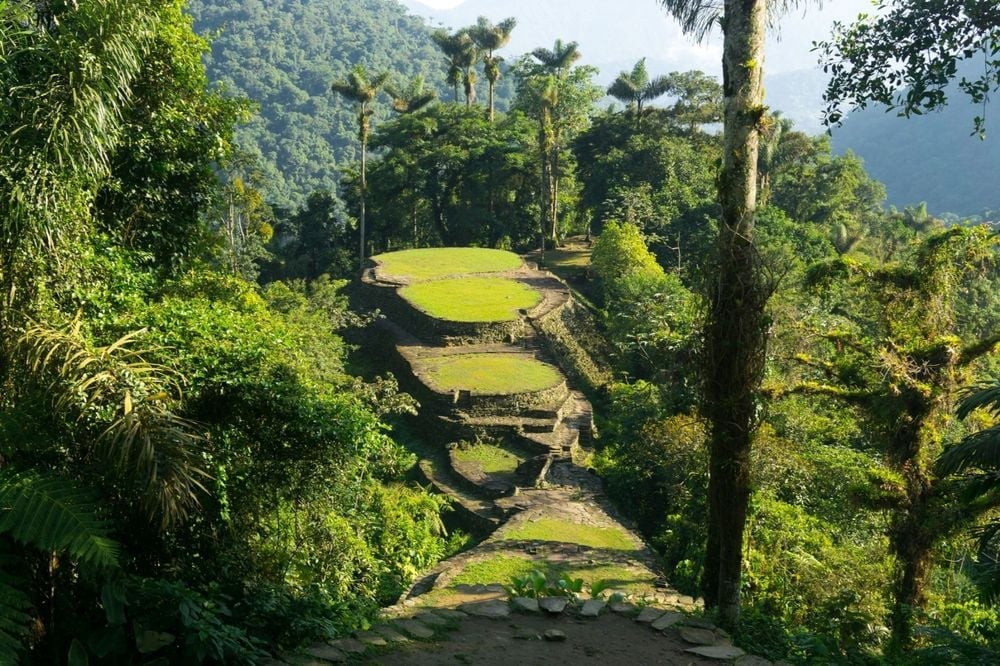
- Season: Rainy season
- Temperature: 30°C high, 17°C low
- Time zone: GMT-5
- Currency: Colombian Peso
- Best for: Mixing jungle and archaeology
Leave the coastal city of Santa Marta, on Colombia’s Caribbean Sea, and venture into the highest coastal mountain range on earth - the Sierra Nevada de Santa Marta jungle. There, you’ll find hundreds of miles of hiking trails, but by far the best known is that which leads to Ciudad Perdida, an ancient site called Teyuna by the indigenous locals, and known as The Lost City to the world.
The site is an ancient, layering citadel which dates back to 800AD. The route to Teyuna usually runs four or five days long, with the key day being the ascent up 1200 stone steps, lined by heavy jungle, which bring you out to the plateau of the ancient site. While the site is spectacular, it's all about the journey here, which involves river crossings, jungle trails and stays in remote bunkhouses.
How to Get There? Fly into the Simón Bolívar International Airport in Santa Marta.
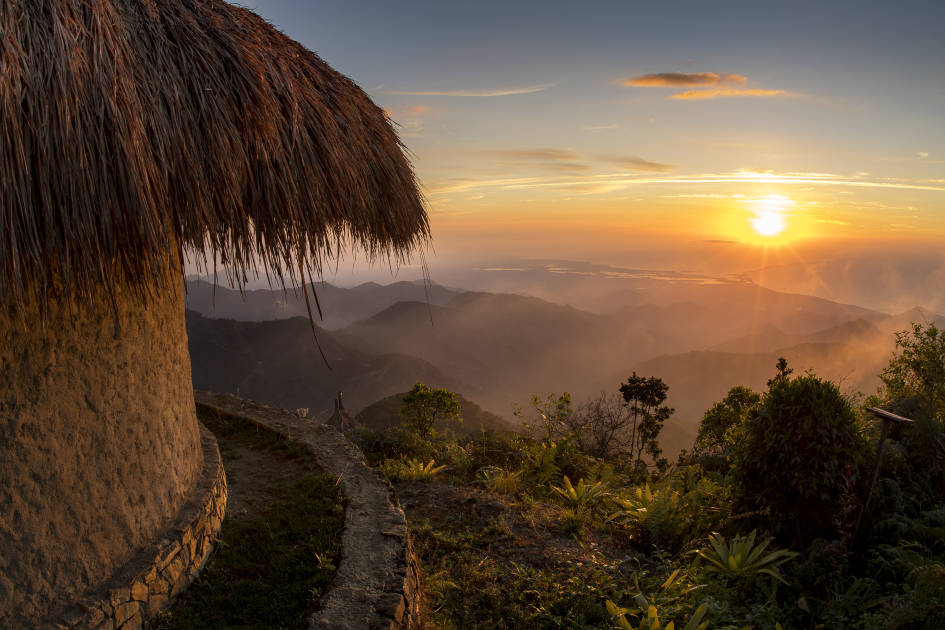
18. The Hidden Coves of Crete
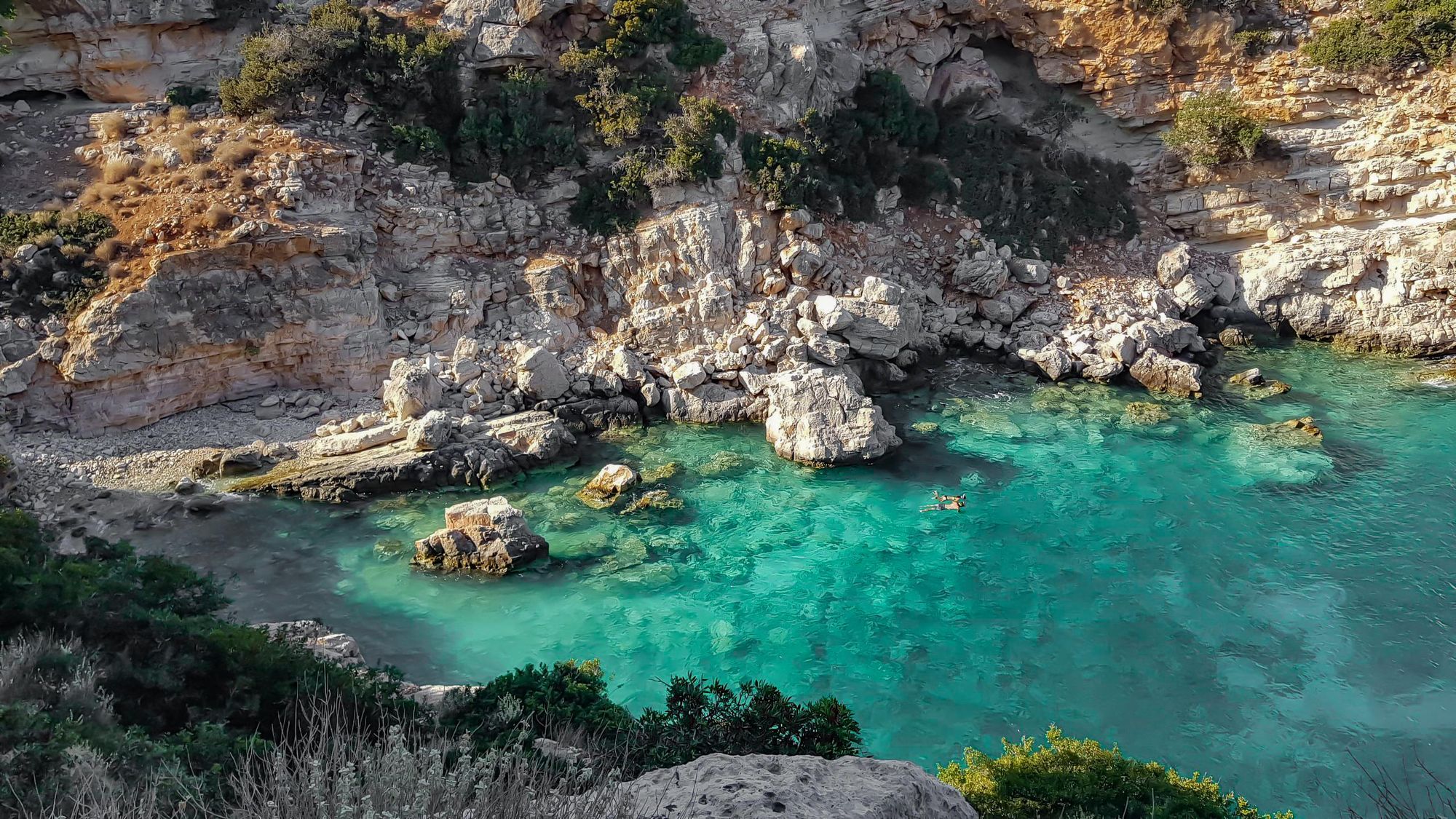
- Season: Summer
- Temperature: 30°C high, 18°C low
- Time zone: GMT+3
- Currency: Euro
- Best for: A pure island adventure
Are you a water baby? Well then this may be the hike for you. Crete is the largest and the most populous of the Greek islands, but that doesn't make it difficult to find a pocket of natural beauty and tranquillity here.
There are so many remote wild swim spots on Crete, from sea pools and lagoons to quiet bays...
You can walk through Sirikari Gorge, where griffon vultures nest, or hike Kampos Gorge, dense with Mediterranean fauna - but the real appeal of this island is in the contrast between the rugged terrain and the picture-perfect water which is waiting to invite you in. There are so many remote wild swim spots on Crete, from sea pools and lagoons to quiet bays - a few favourites being Kissamos Bay and Cape Crow. Open water swimmers will want to take on the 2.2-mile (3.7km) swim out to Limpet Island, completing what is known as the Falasarna Triangle.
How to Get There? Fly into Heraklion Airport or Chania Airport on the island of Crete. You can also reach the island by ferry from Athens, the capital of Greece.

19. The Great National Parks of Western USA
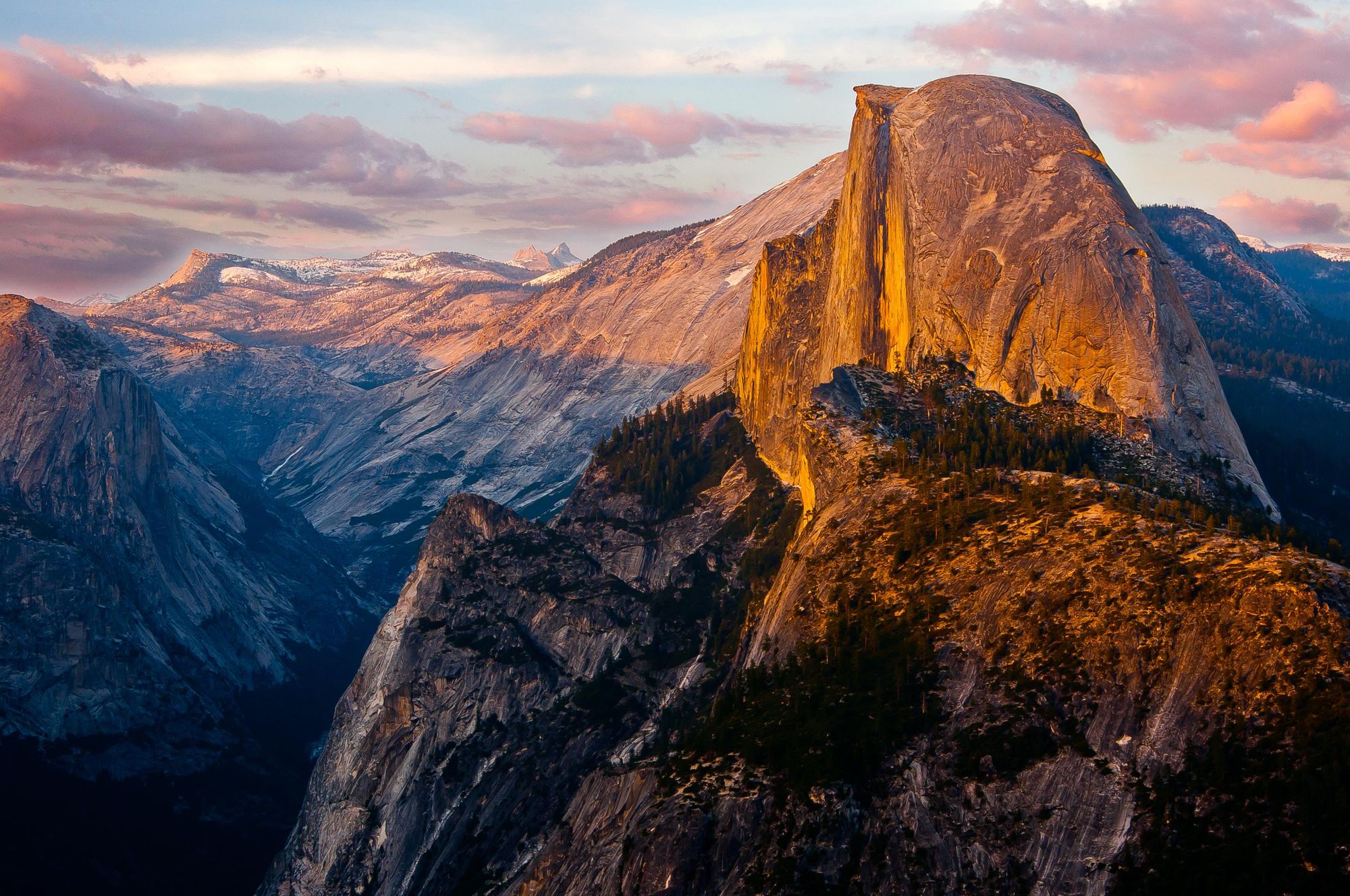
- Season: Summer
- Temperature: 29°C high, 5°C low
- Time zone: GMT-7
- Currency: US Dollar
- Best for: A wild west adventure
The national parks of western USA are iconic in the world of the great outdoors. In Yosemite National Park you have the legendary Half Dome, El Capitan - famously solo’d by Alex Hannold - and 96m (317ft) Vernal Falls. In Zion you have towering sandstone cliffs, in Bryce Canyon, the striking hoodoos - tall rock spires that create an otherworldly vistas - and in Sequoia, the enormous Sequoia trees.
Travel along the even-more-famous Route 66, sleeping out beneath big skies and eating campfire dinners, on a road trip from Las Vegas to San Francisco, and take in the legendary beauty of the Grand Canyon to top it all off.
How to Get There? To reach Sequoia & Kings Canyon, fly into Fresno Yosemite International Airport, and then drive the 1hr 30 minutes or take a shuttle bus to the parks.
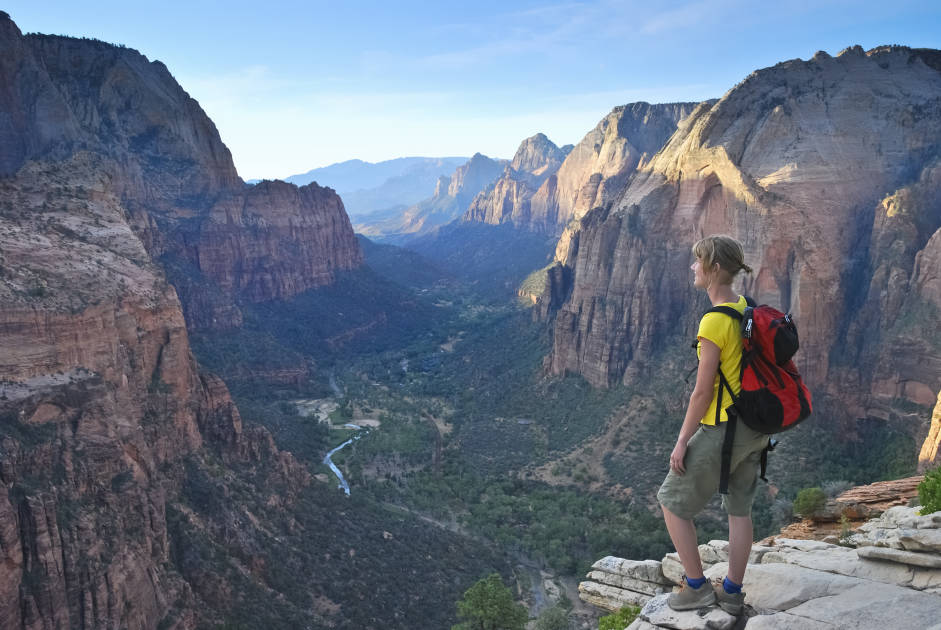
20. The Tian Shan Mountains of Kyrgyzstan
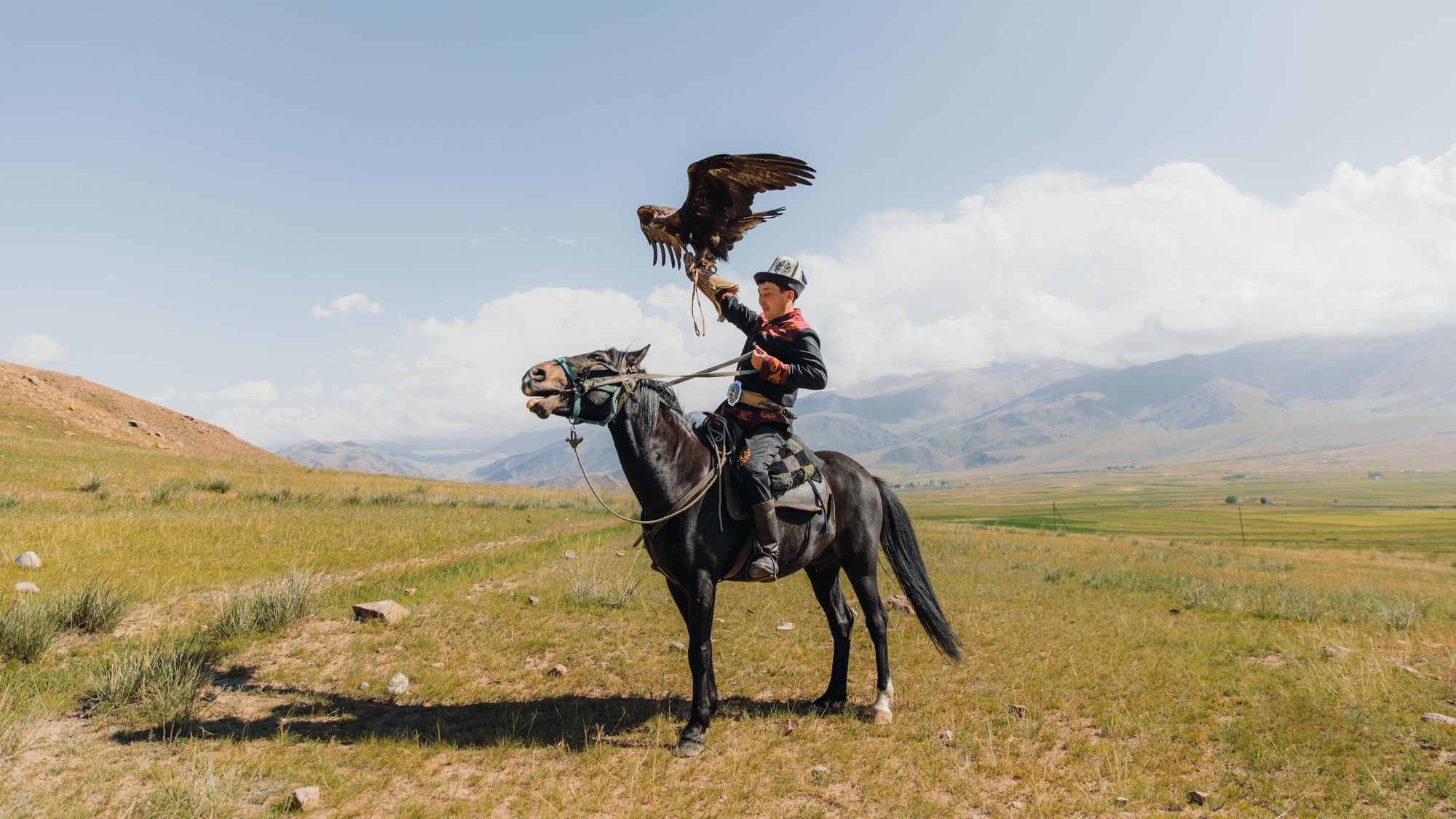
- Season: Summer
- Temperature: 25°C high, 5°C low
- Time zone: GMT+6
- Currency: Kyrgyzstan Som
- Best for: Discovering a true wilderness
Kyrgyzstan is a land of nomads; of eagles, yurts and of sprawling steppe backdropped by the immense Tian Shan mountains. This is the sort of place which can remind you what it can really mean to travel - discovering new cultures, new foods and entirely different ways of life.
This is the sort of place which can remind you what it can really mean to travel...
Maybe it will be while you’re kayaking the majestic Issyk Kul lake, hiking the red-hued Skazka Canyon or crossing Song Kul on horseback that your mind clears, and you fall in love with the world all over again. In June, the snow is melting, revealing the green below, the wildflowers are emergent and the month also marks the start of cultural festivals celebrating nomadic traditions.
How to Get There? Travellers typically fly into Manas International Airport, situated in Bishkek. From here, there are domestic flights, buses and roads you can follow to the mountains proper.
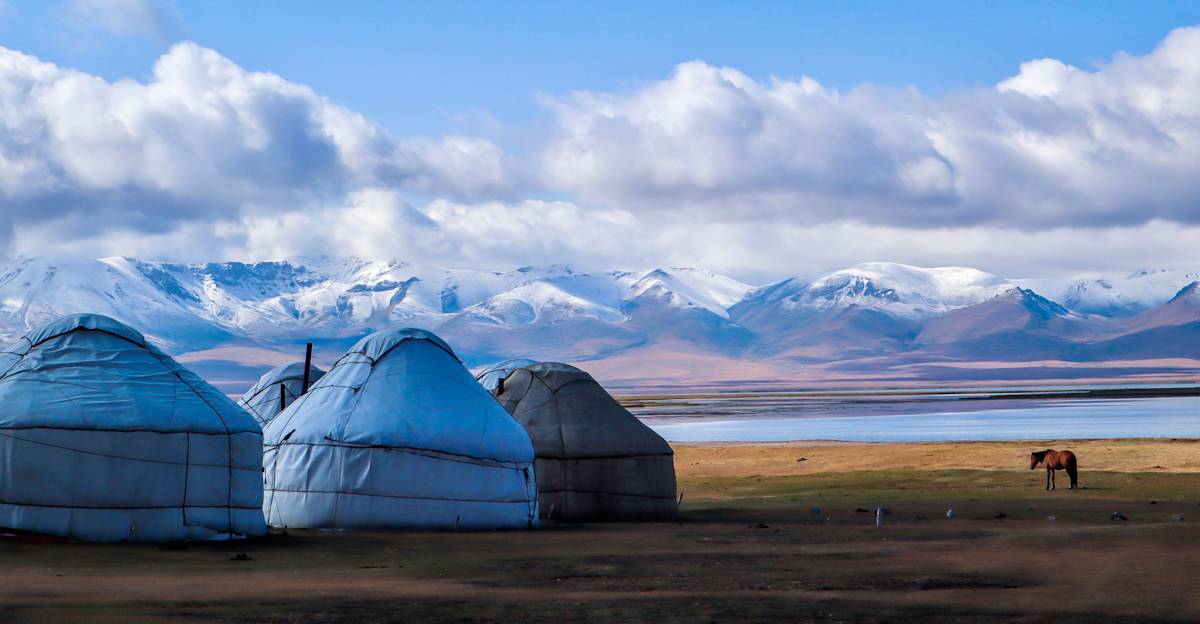
Inspired? Check out our full range of adventure holidays in June now!

